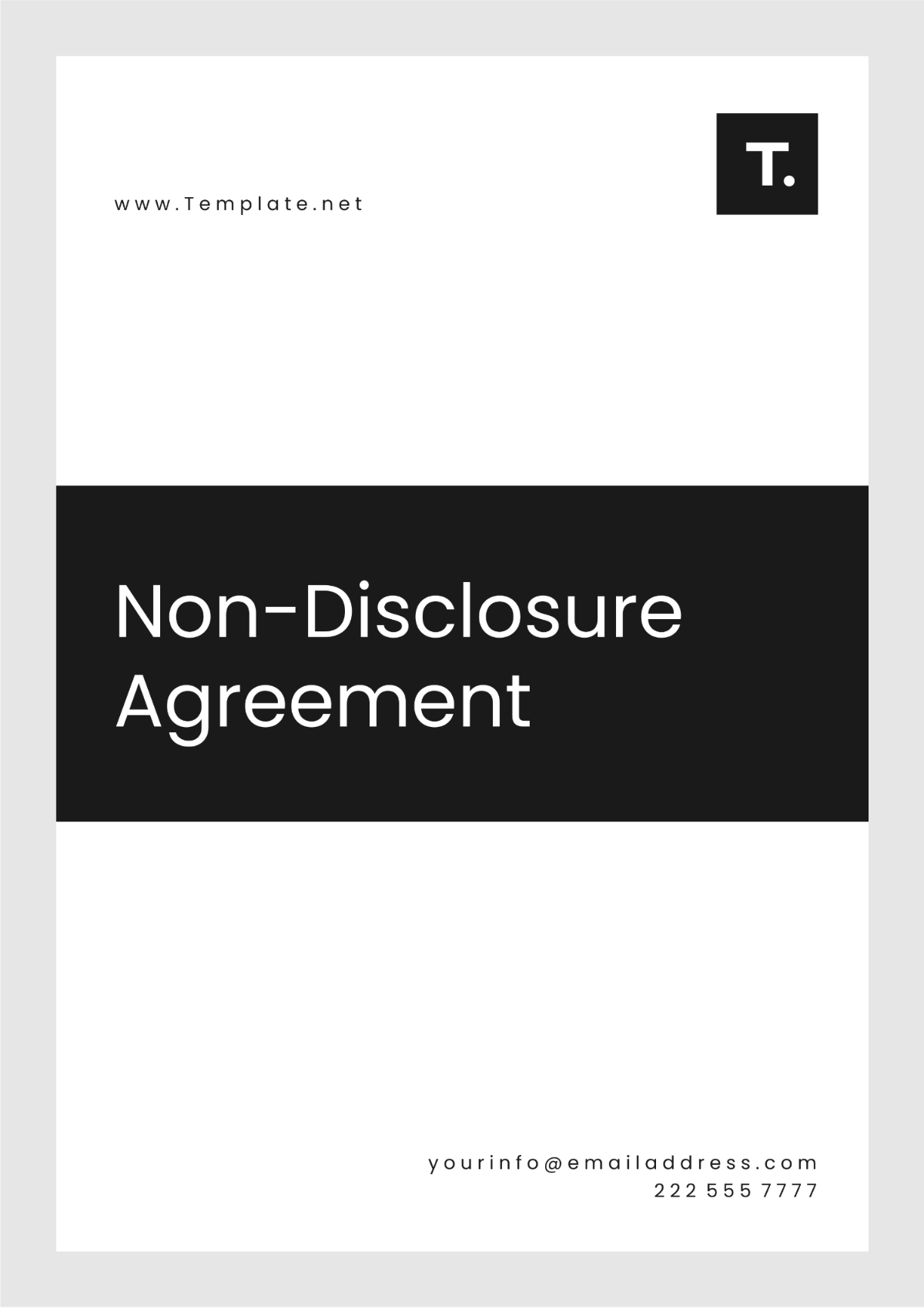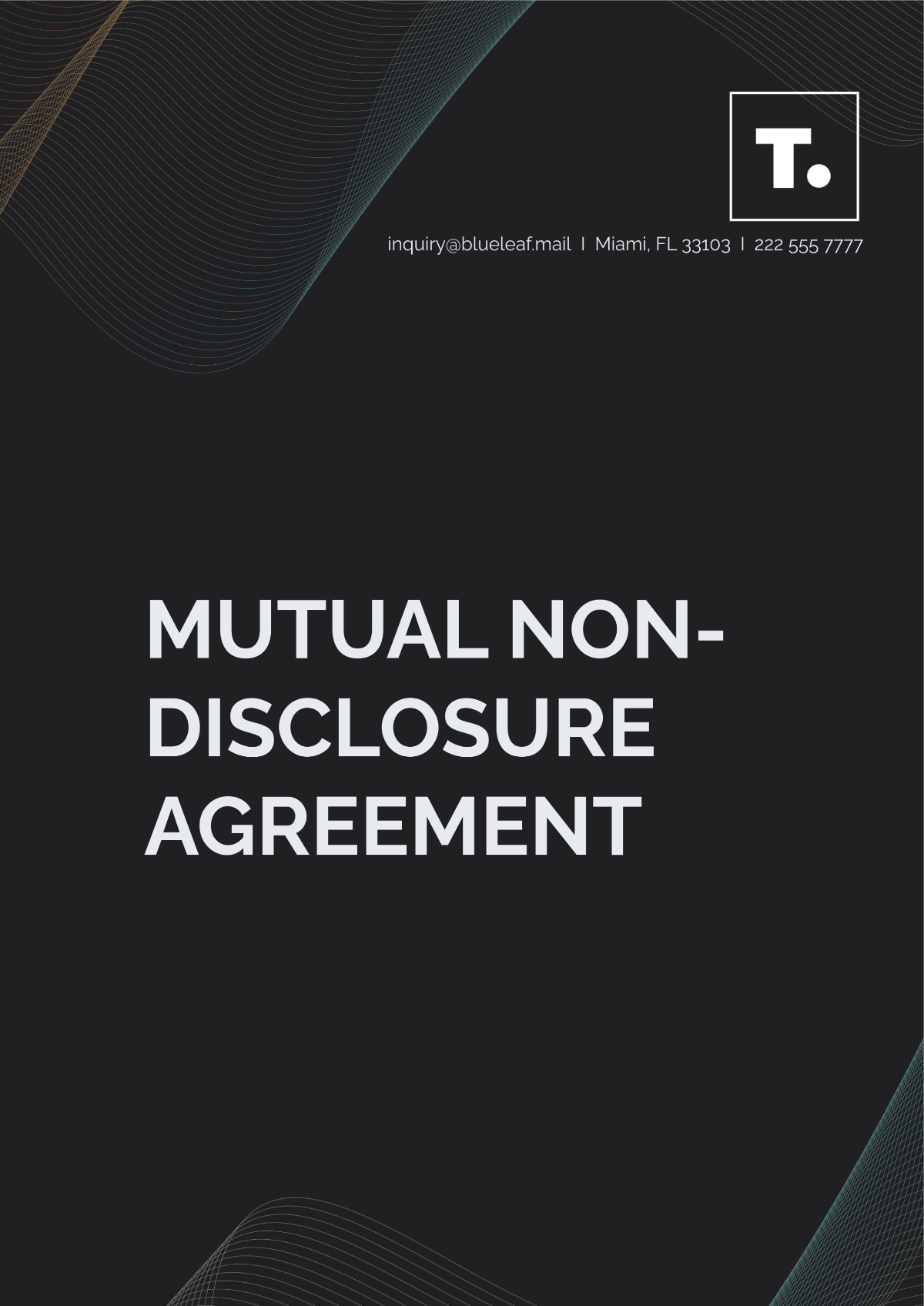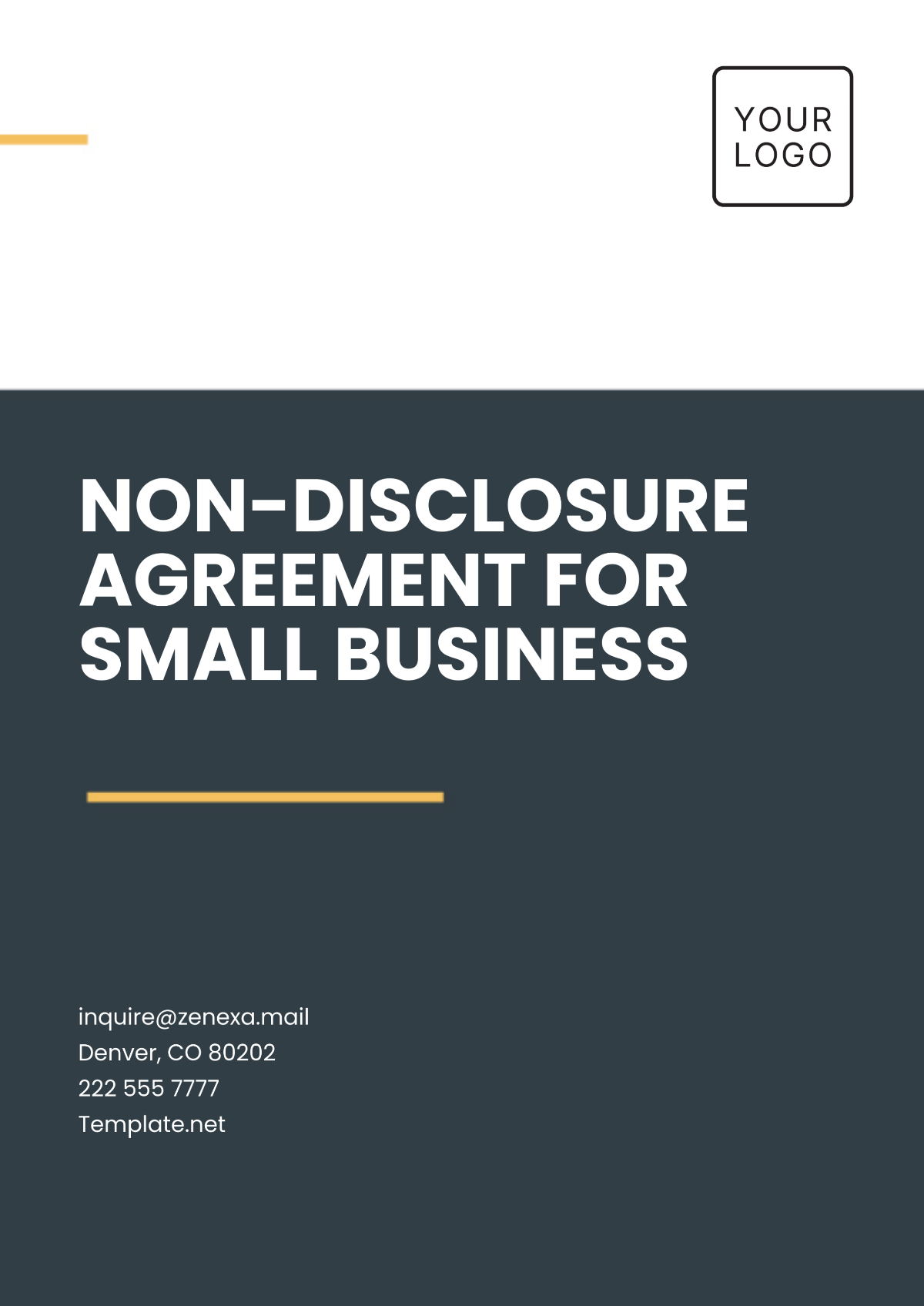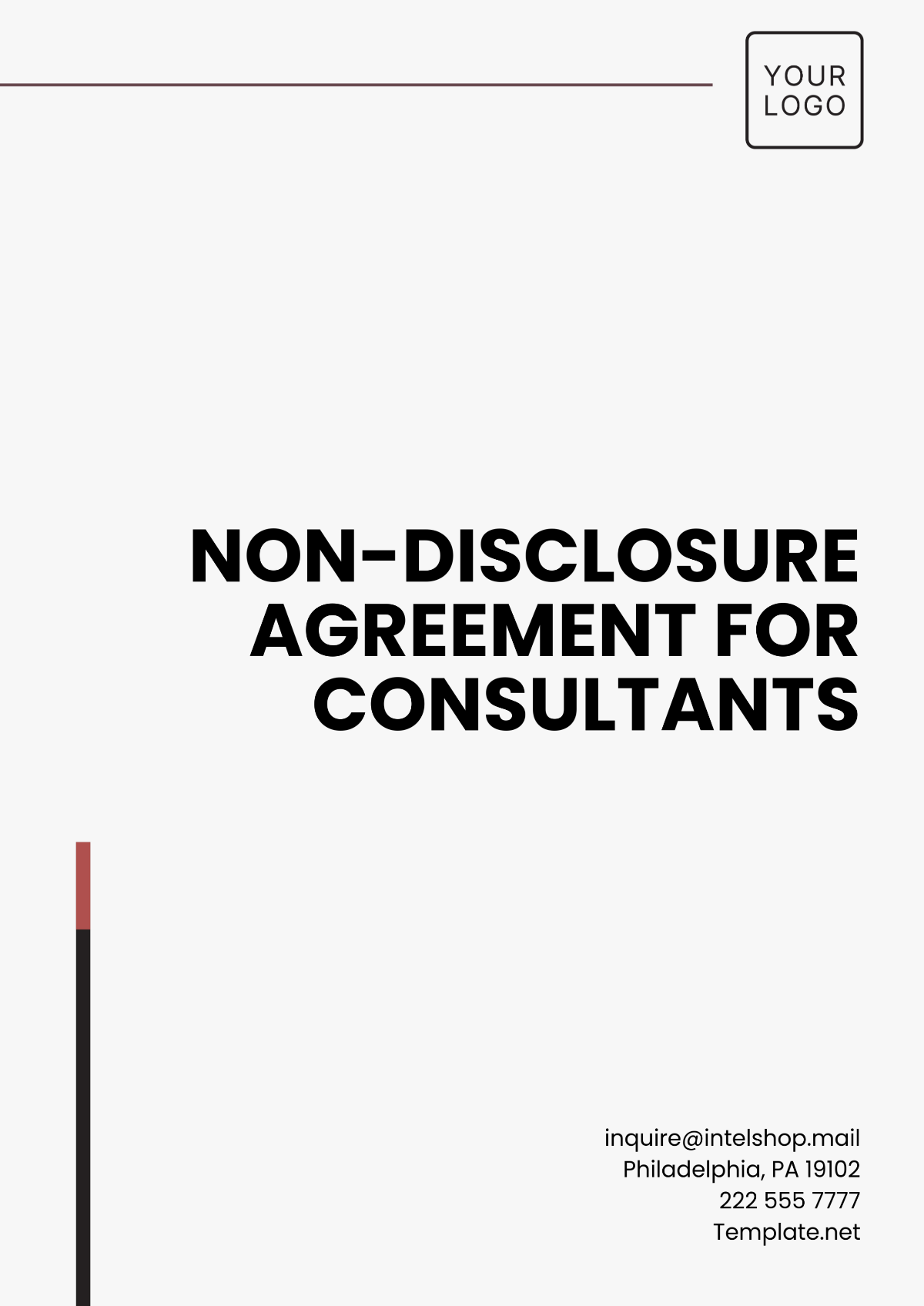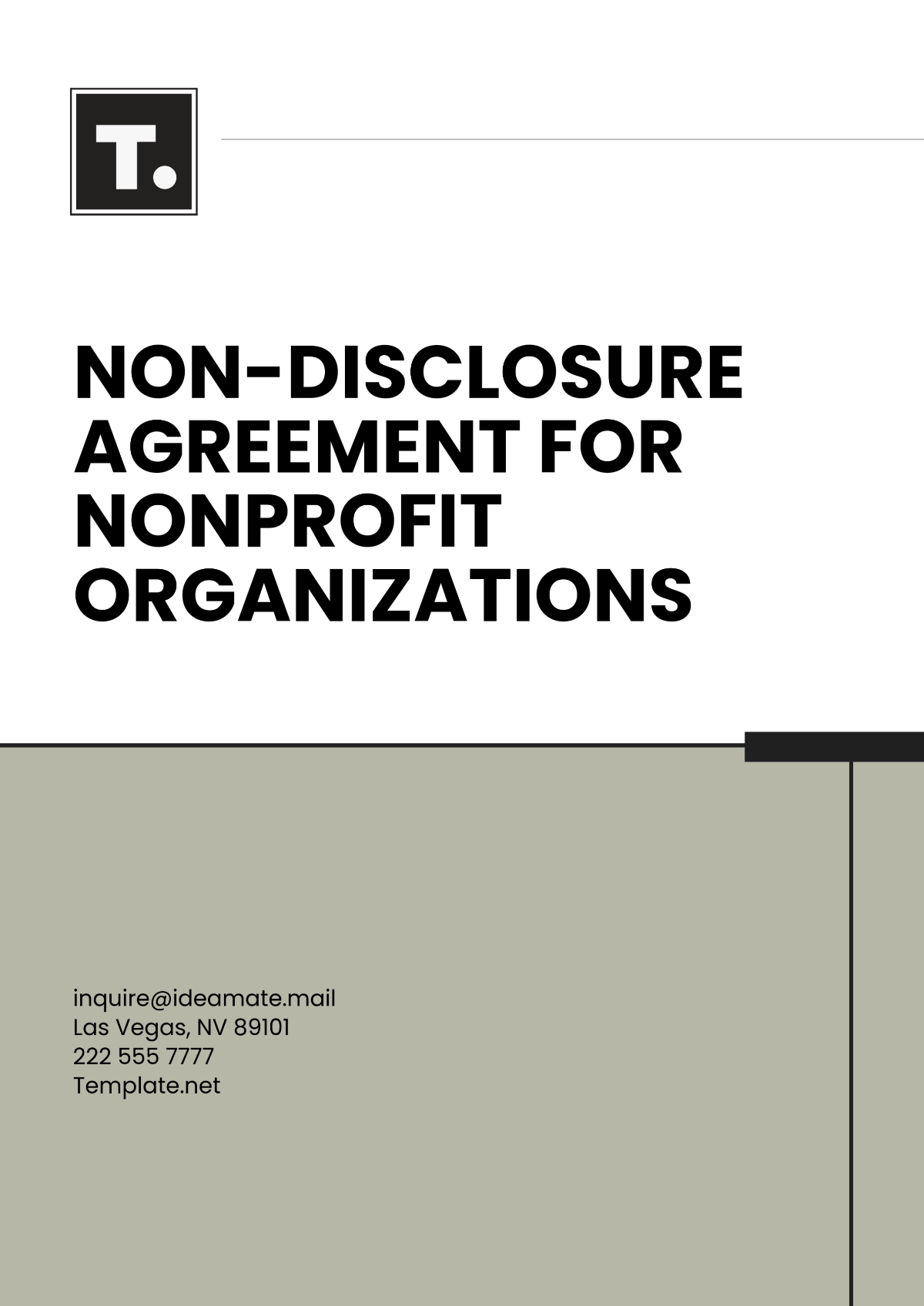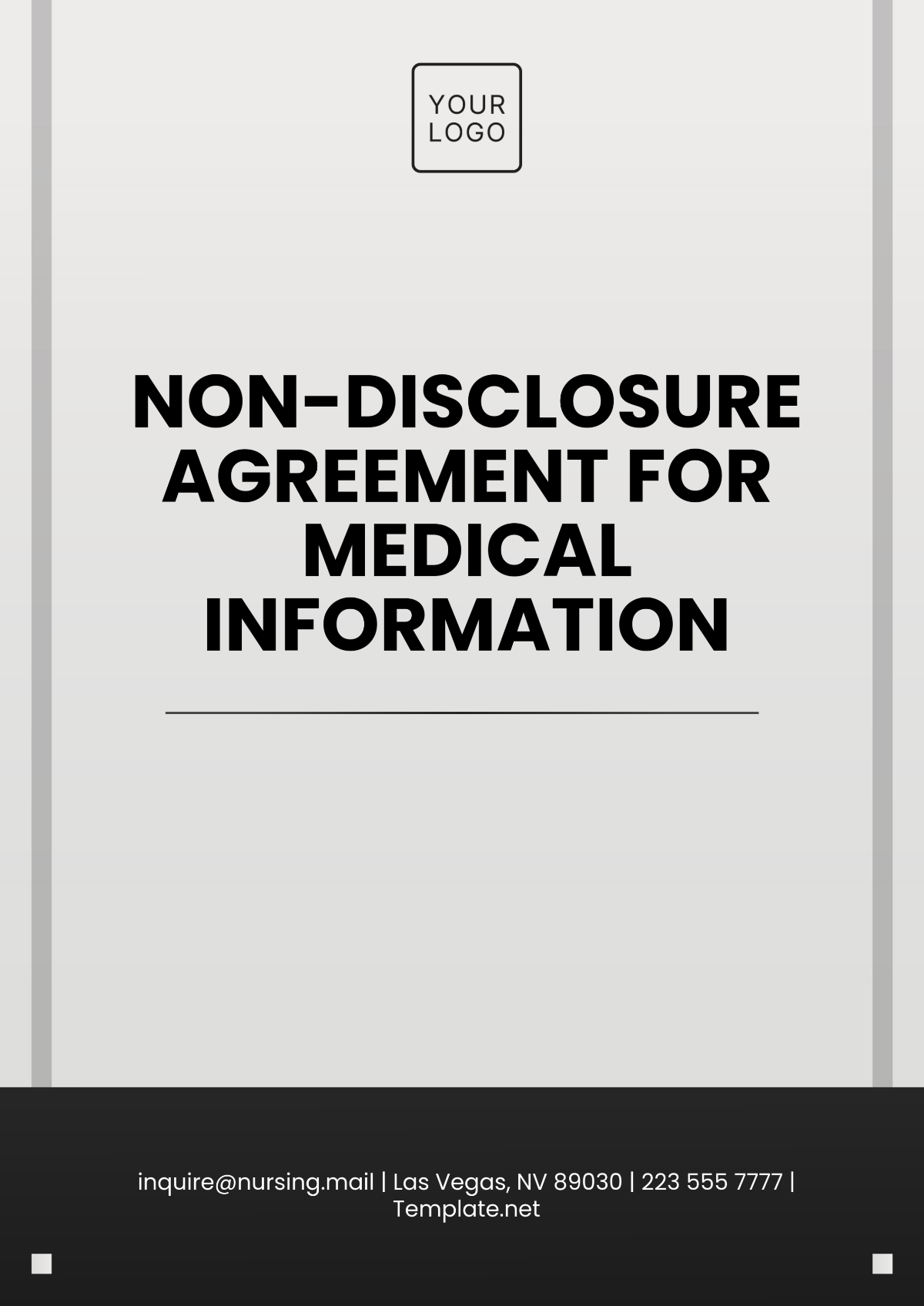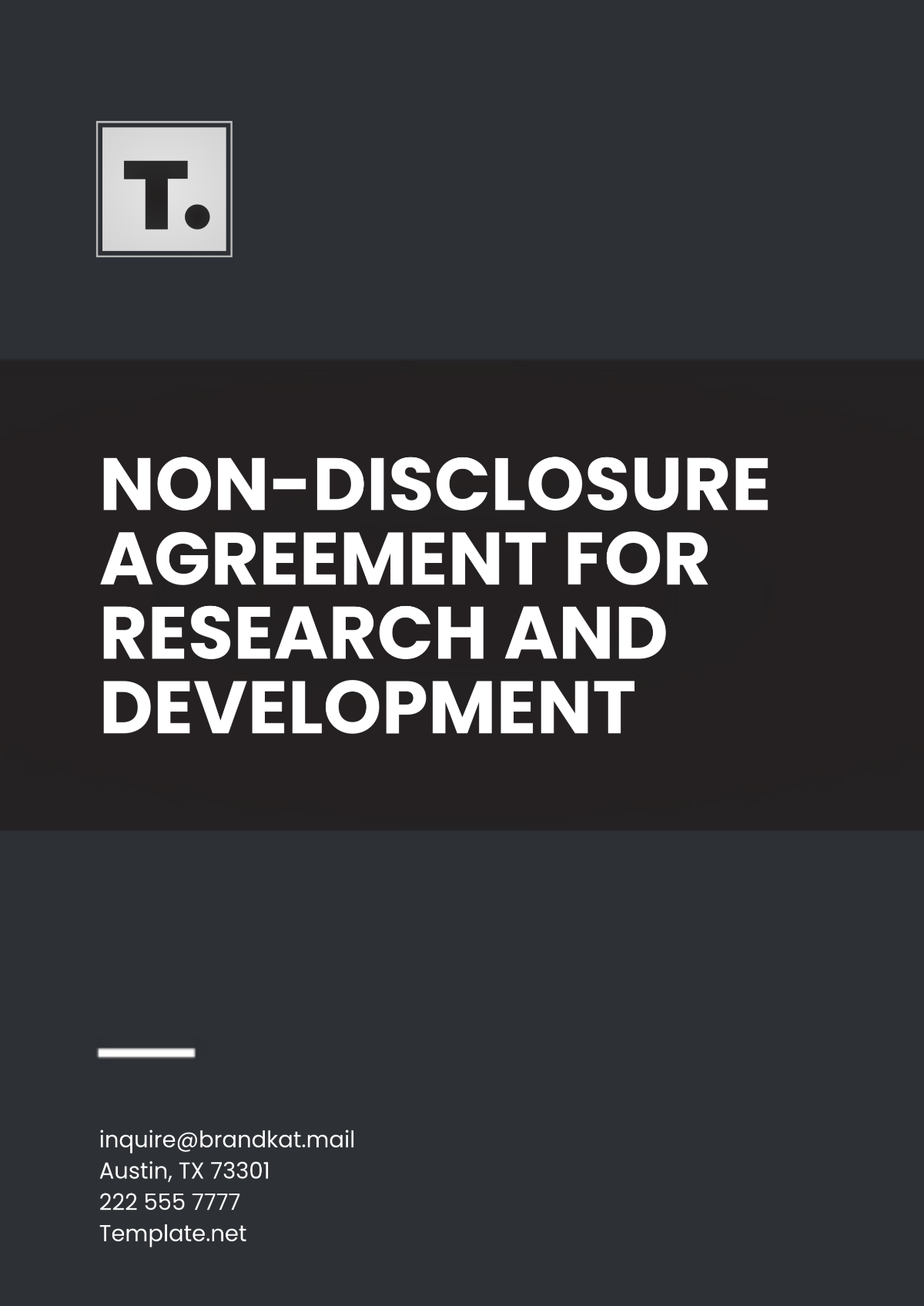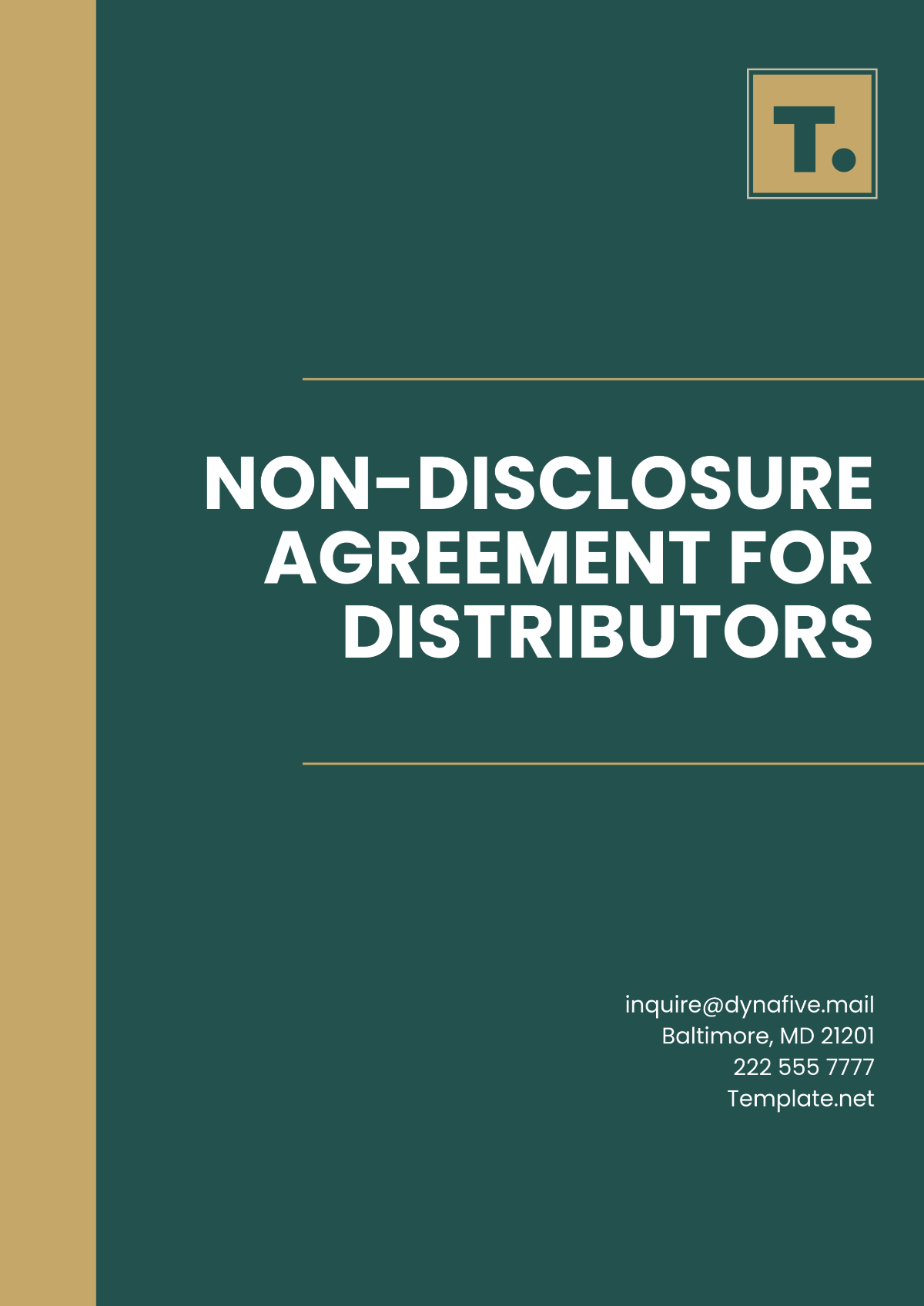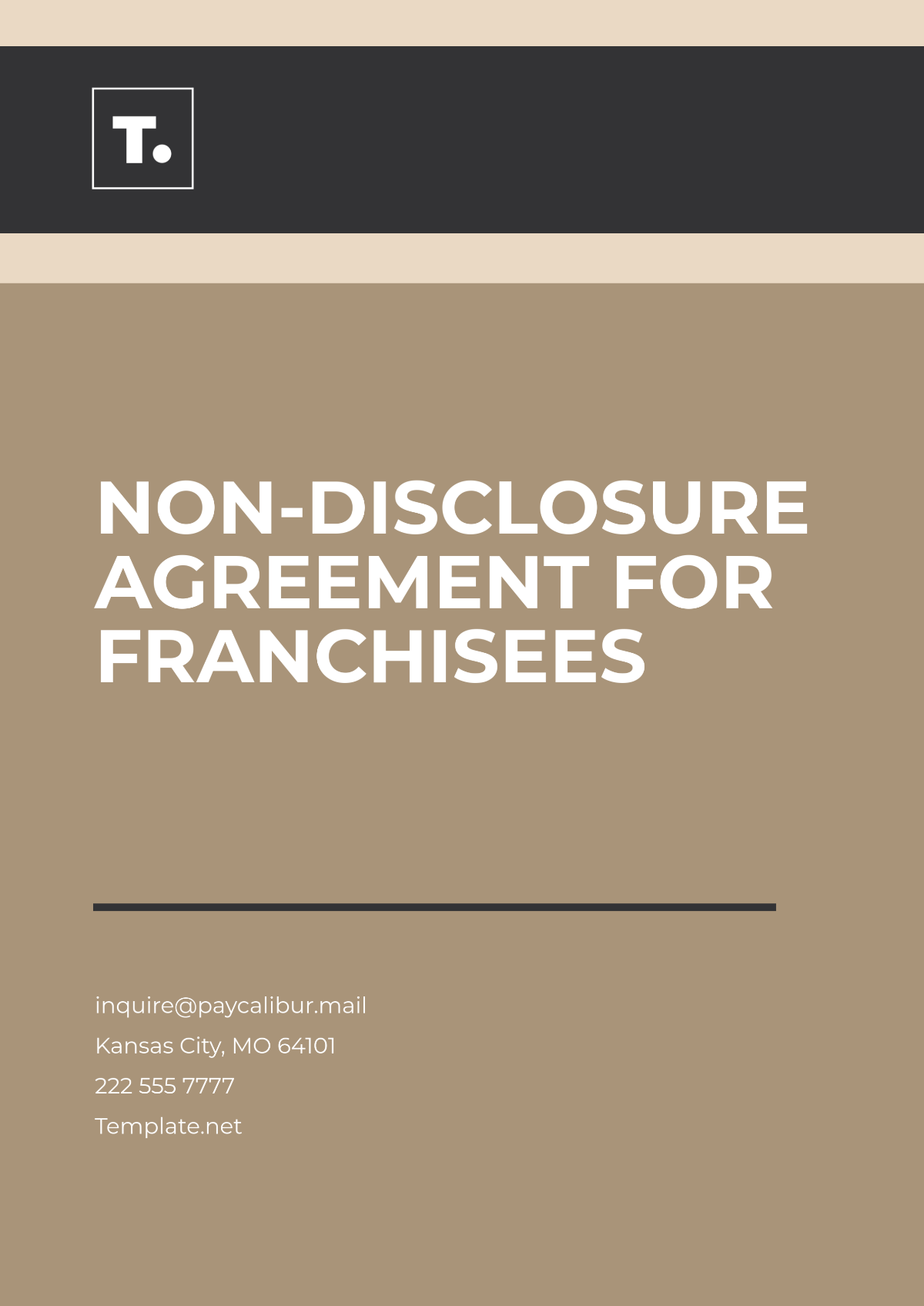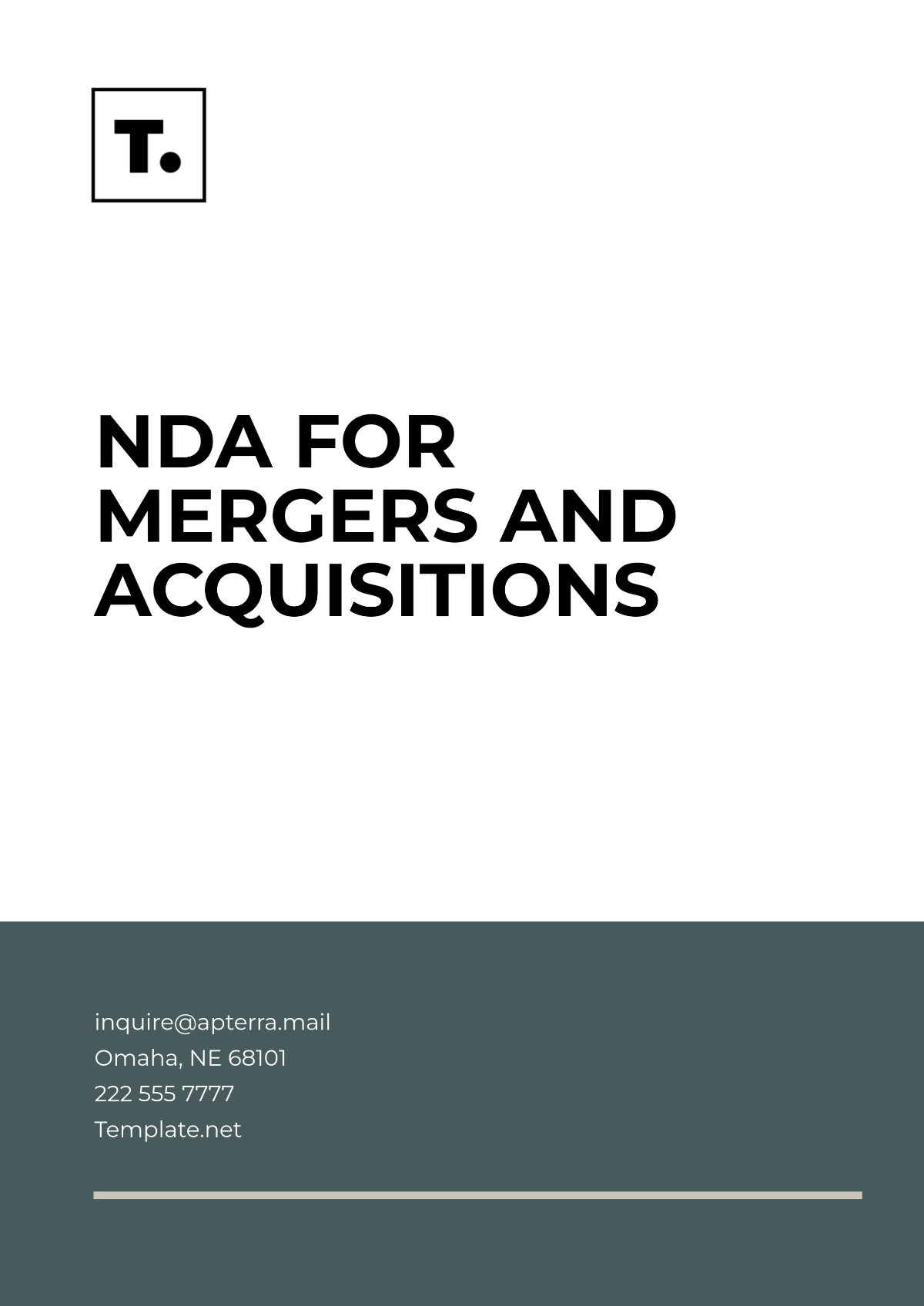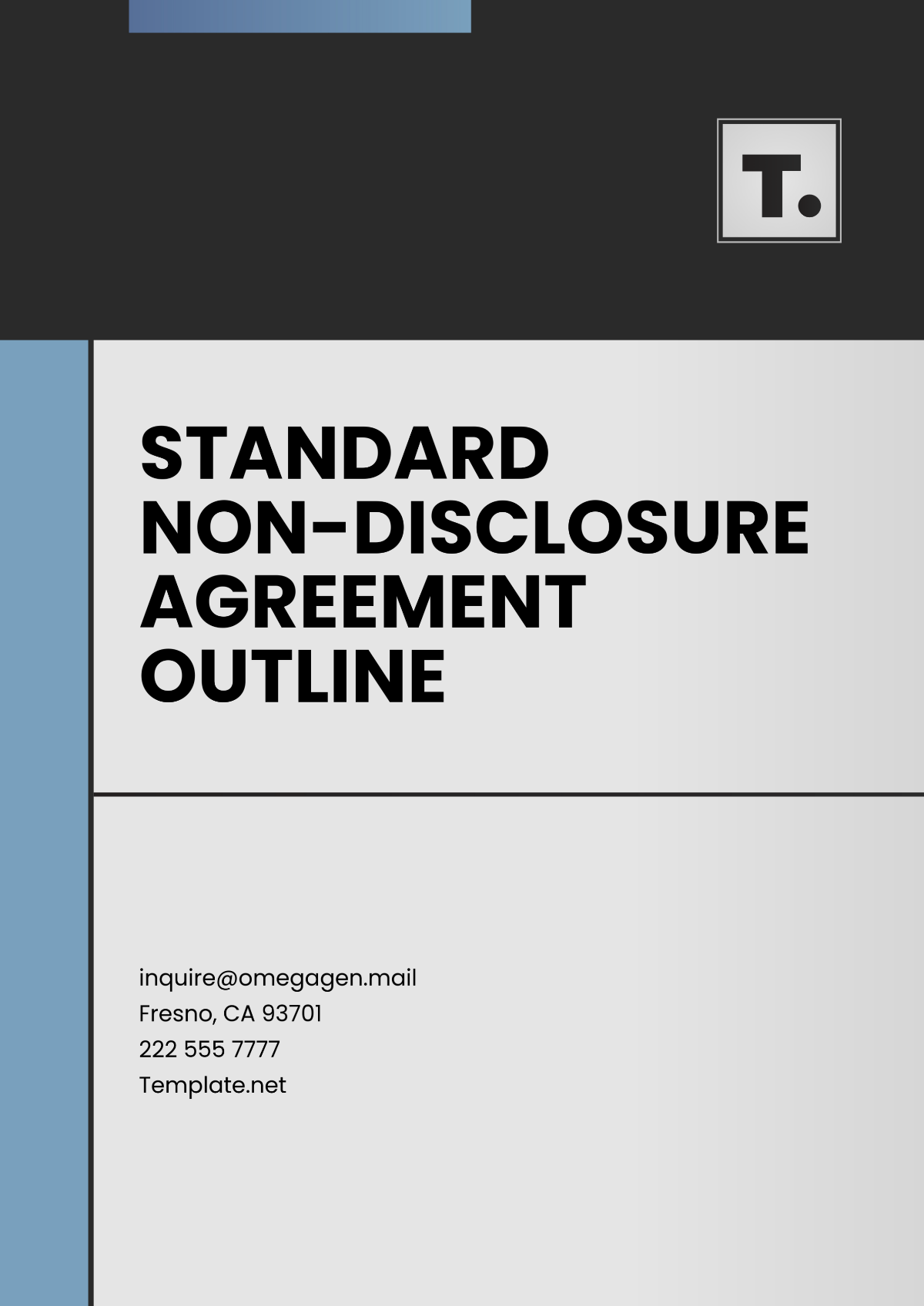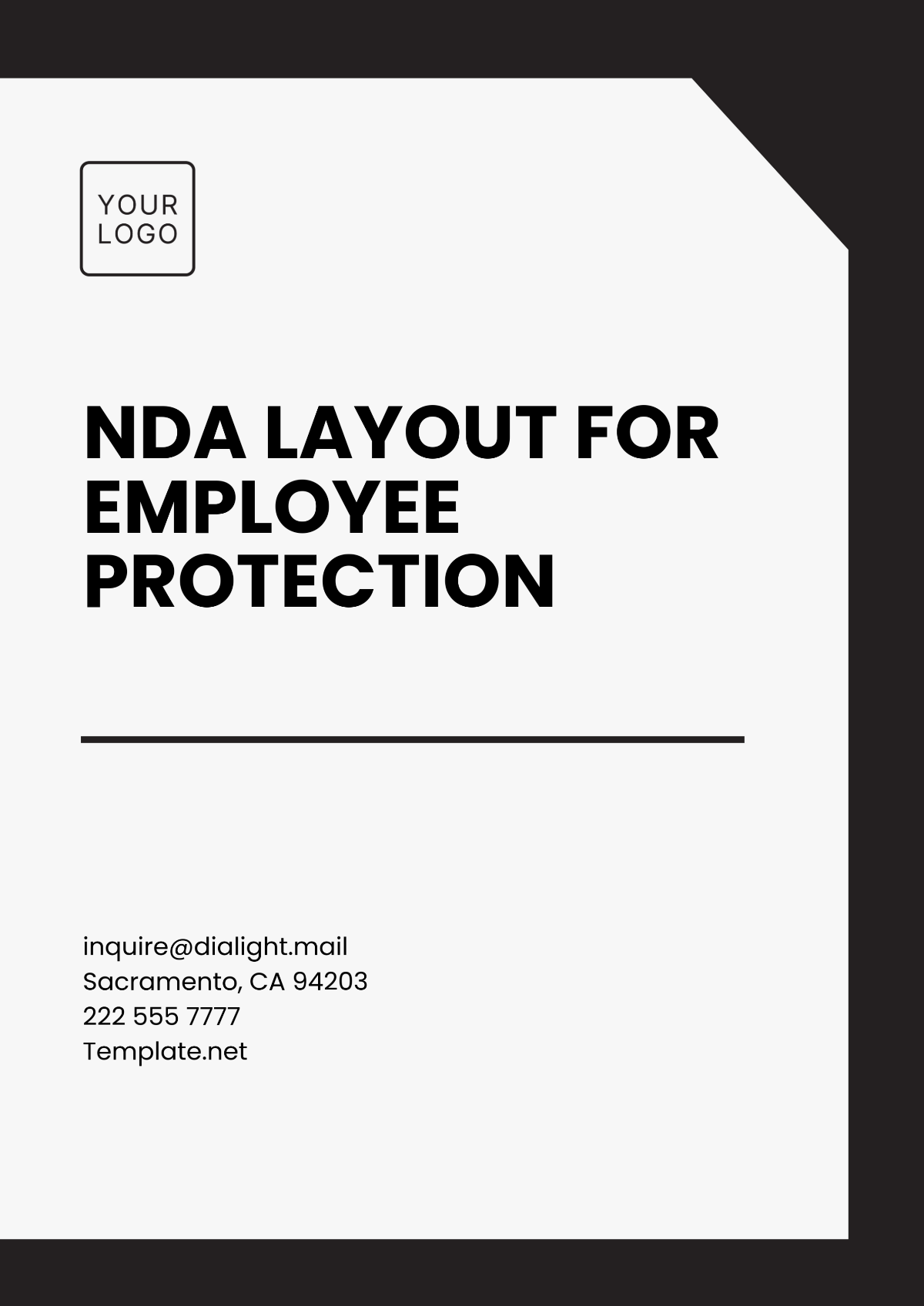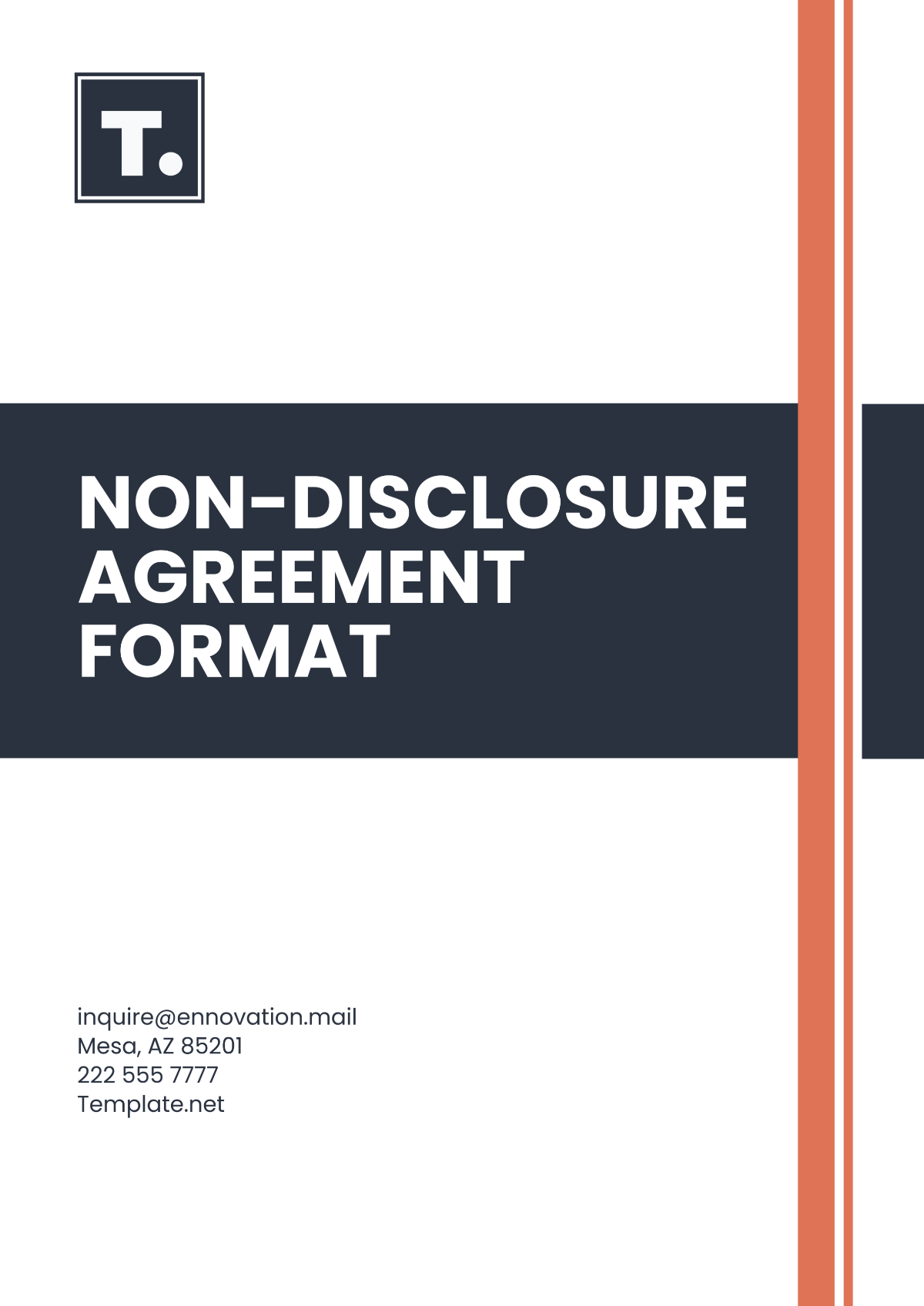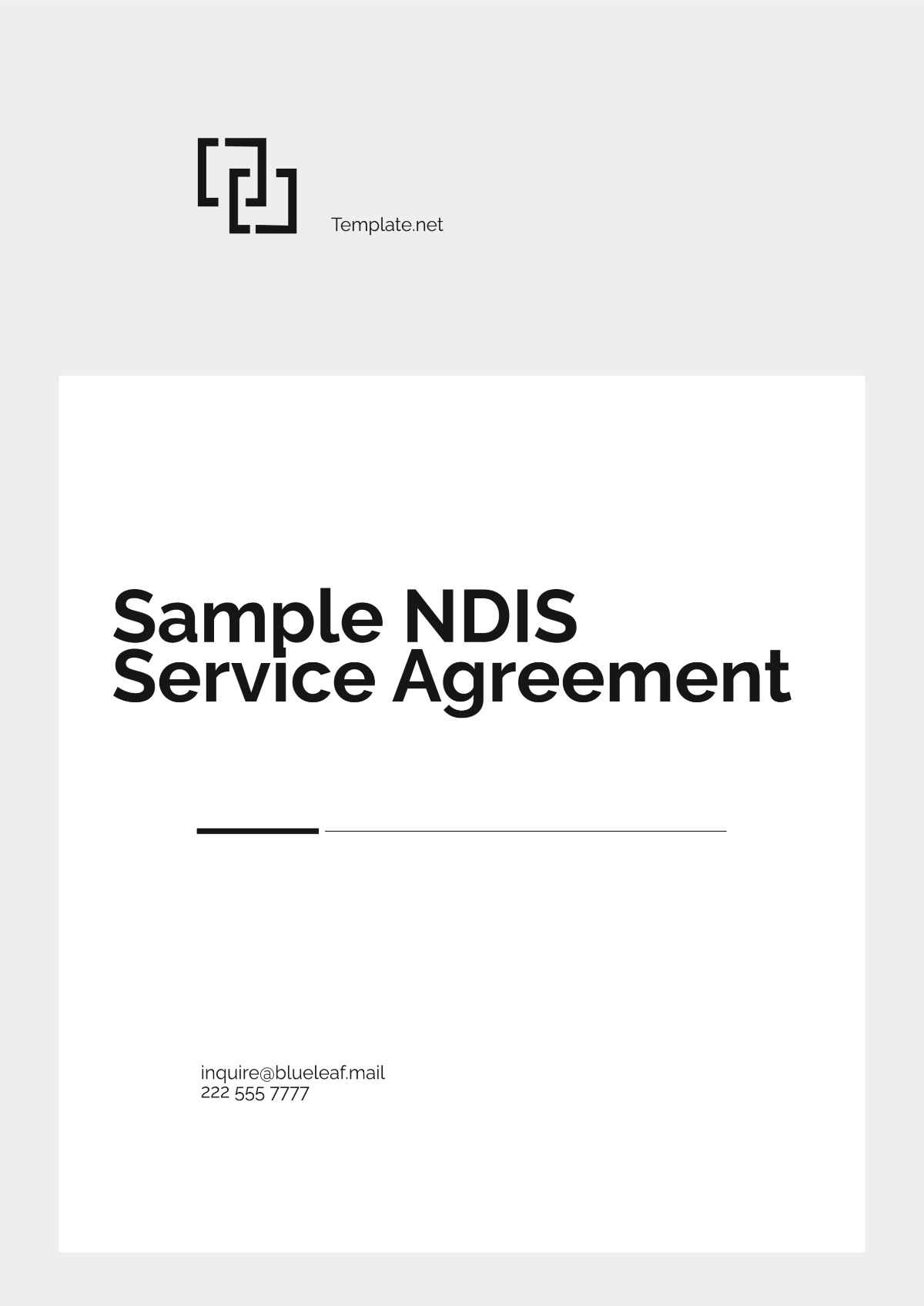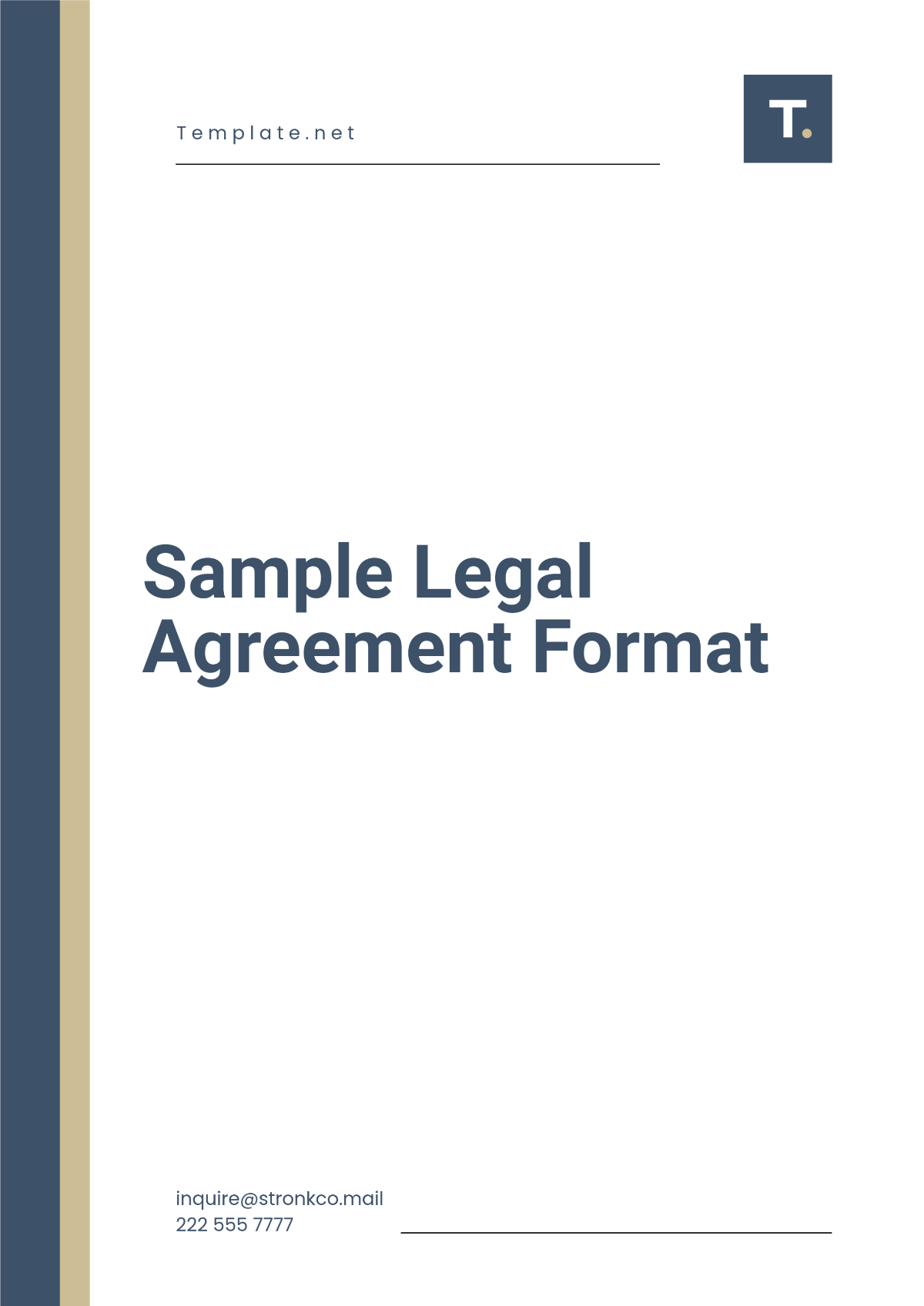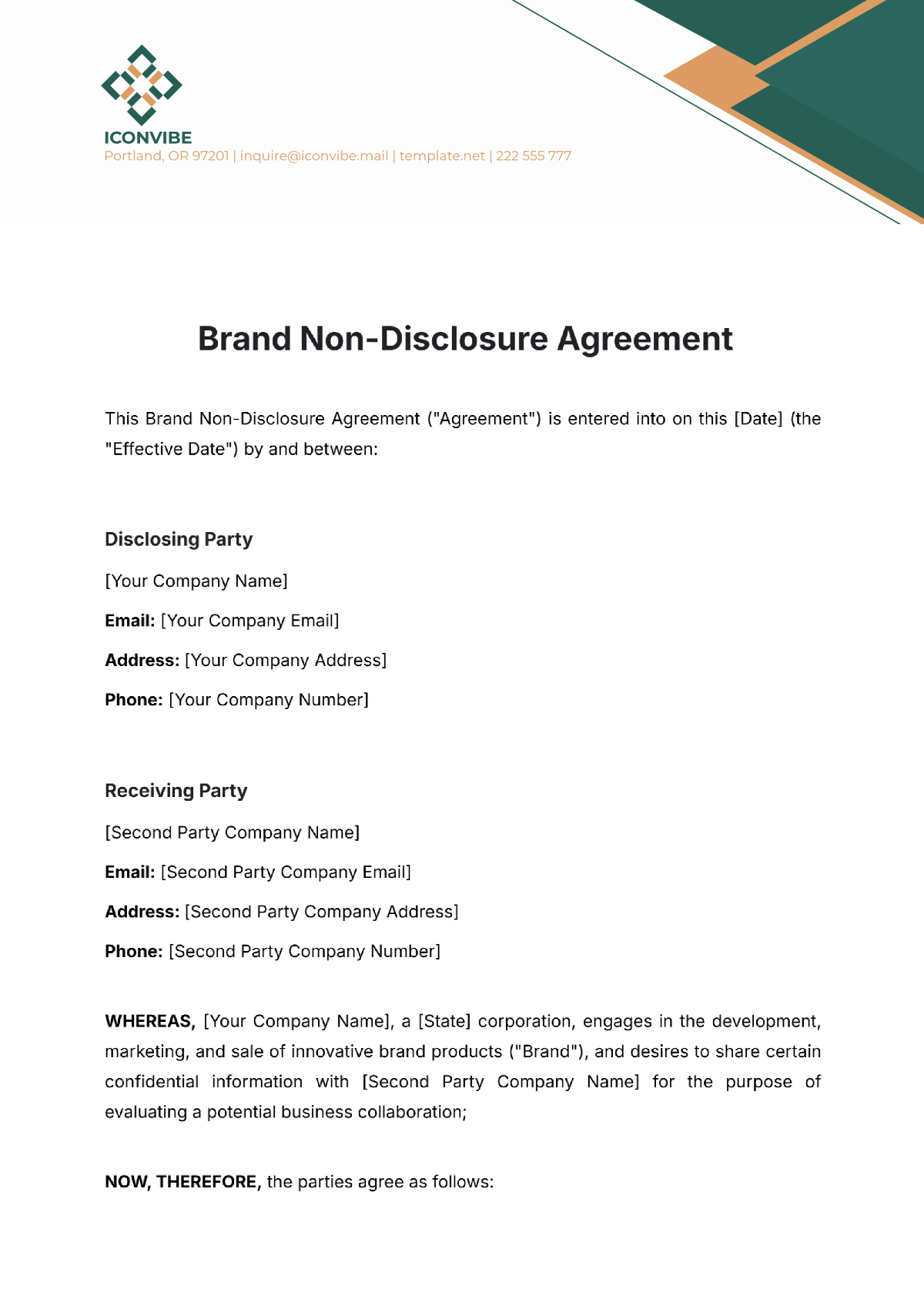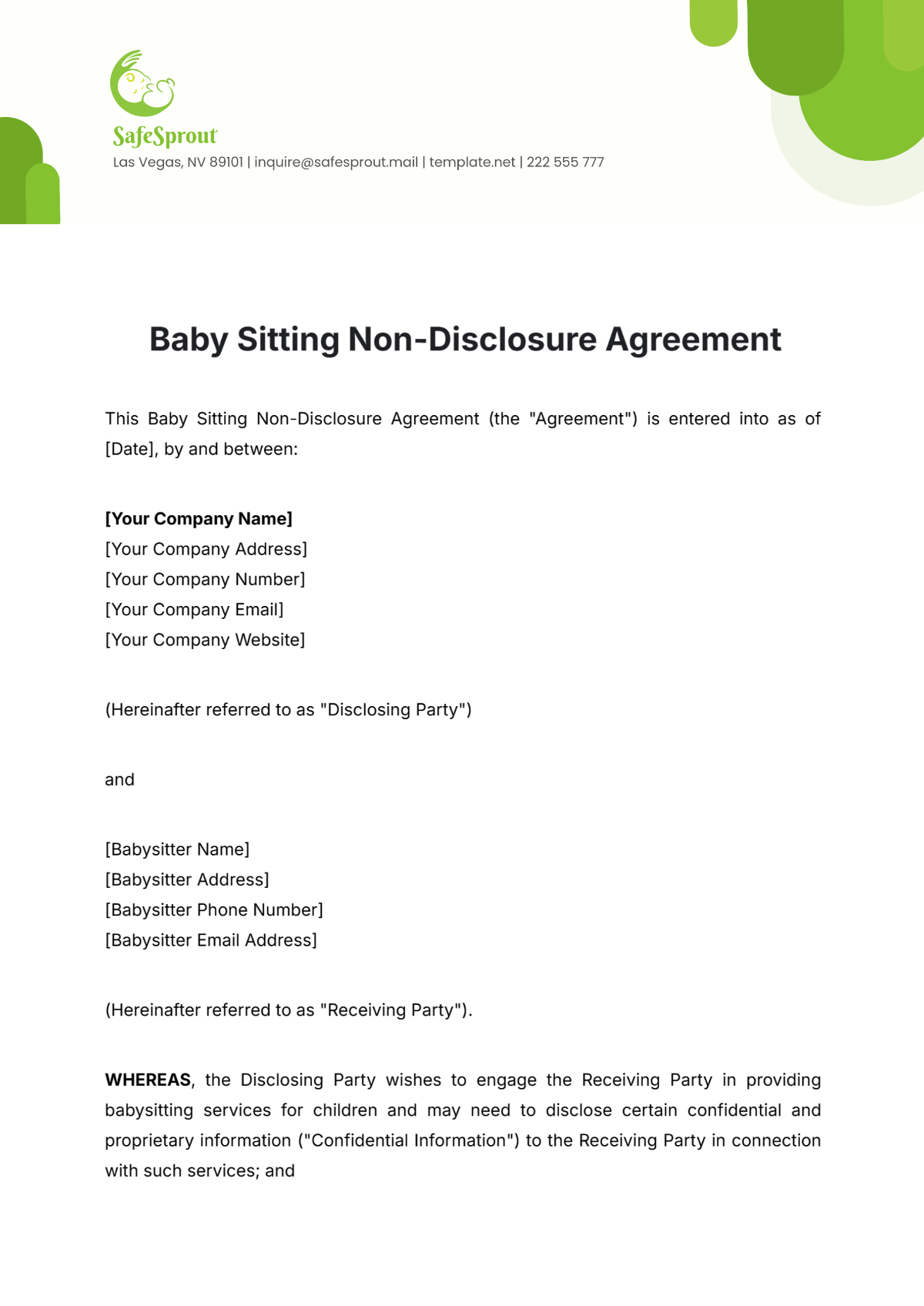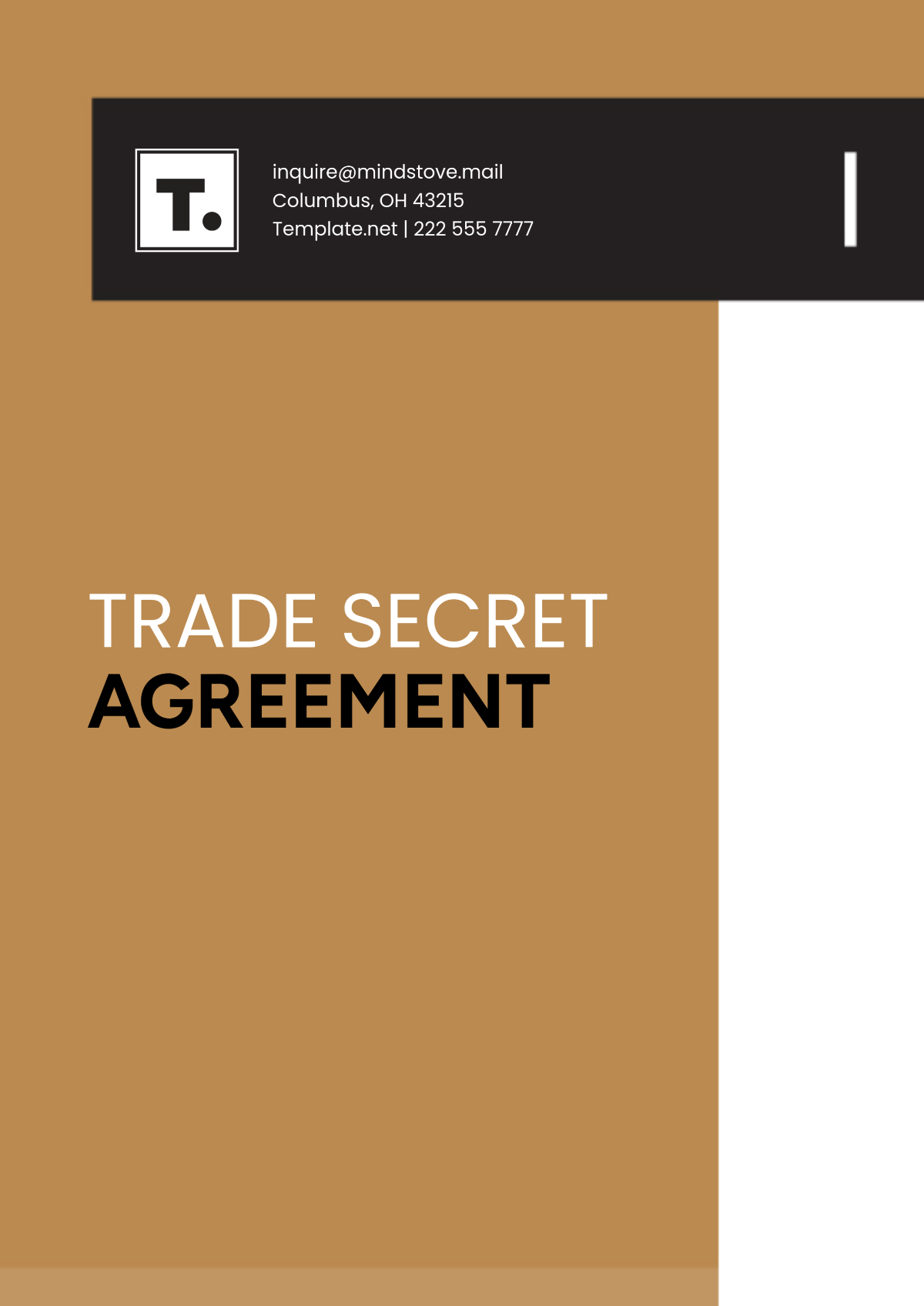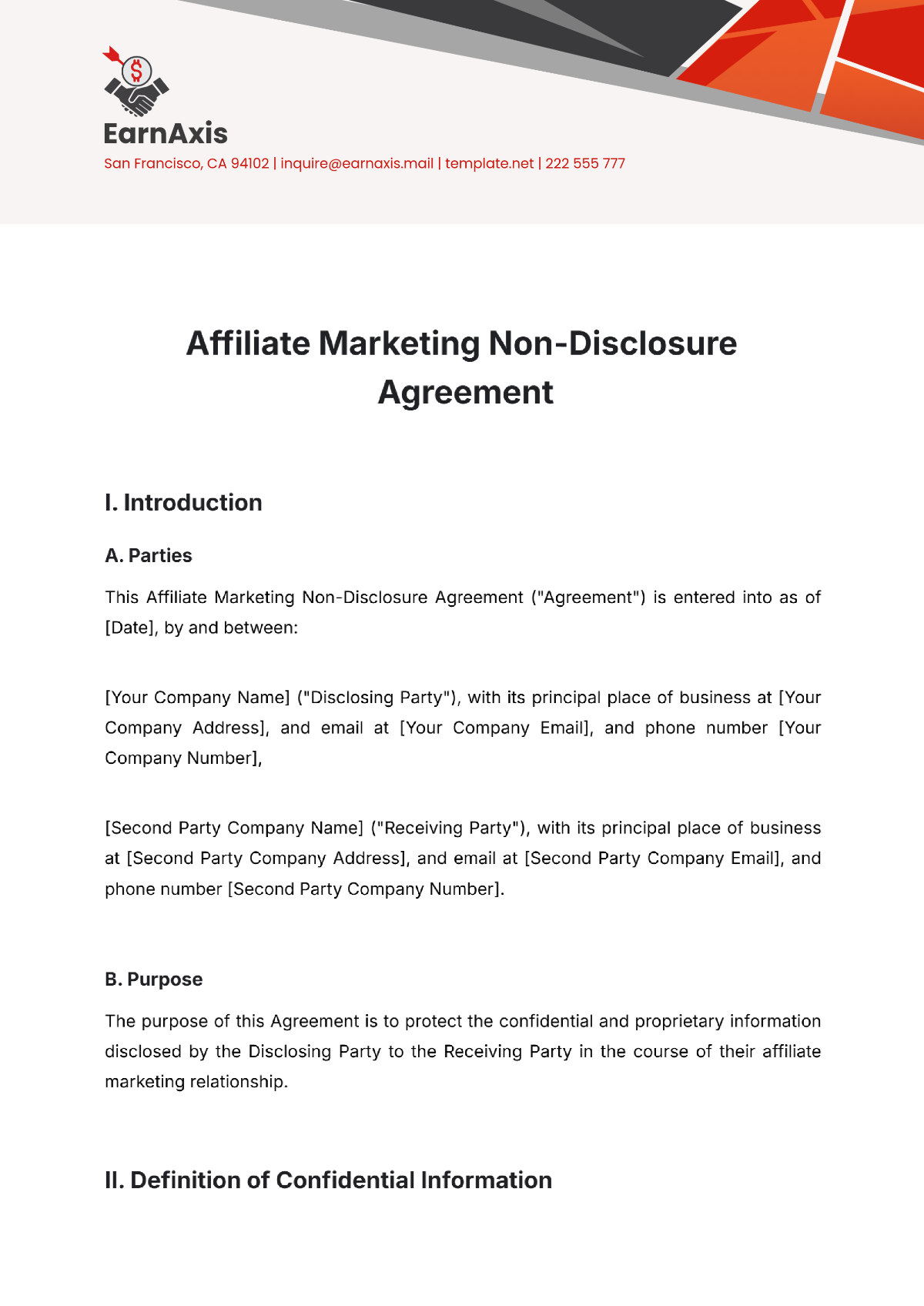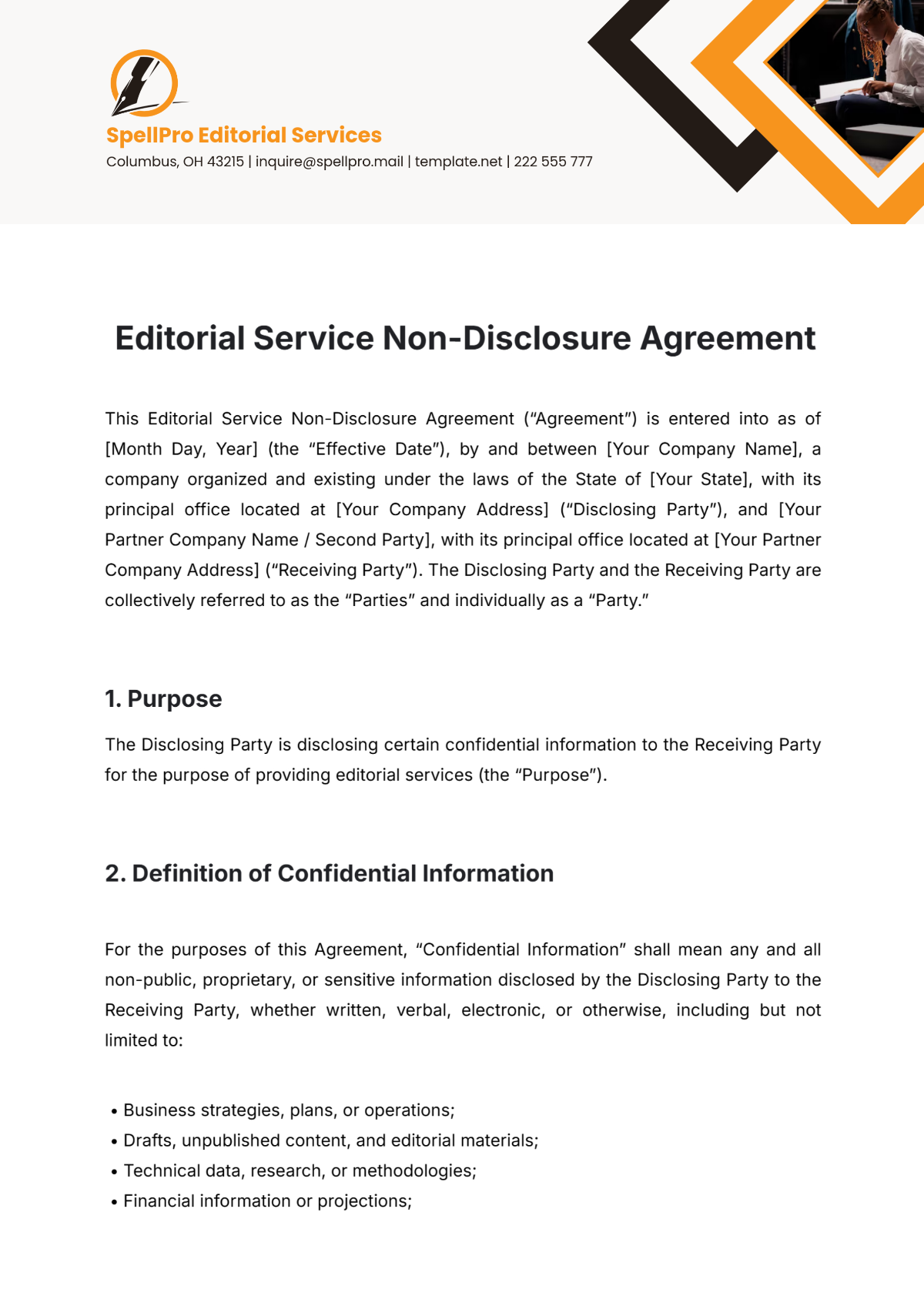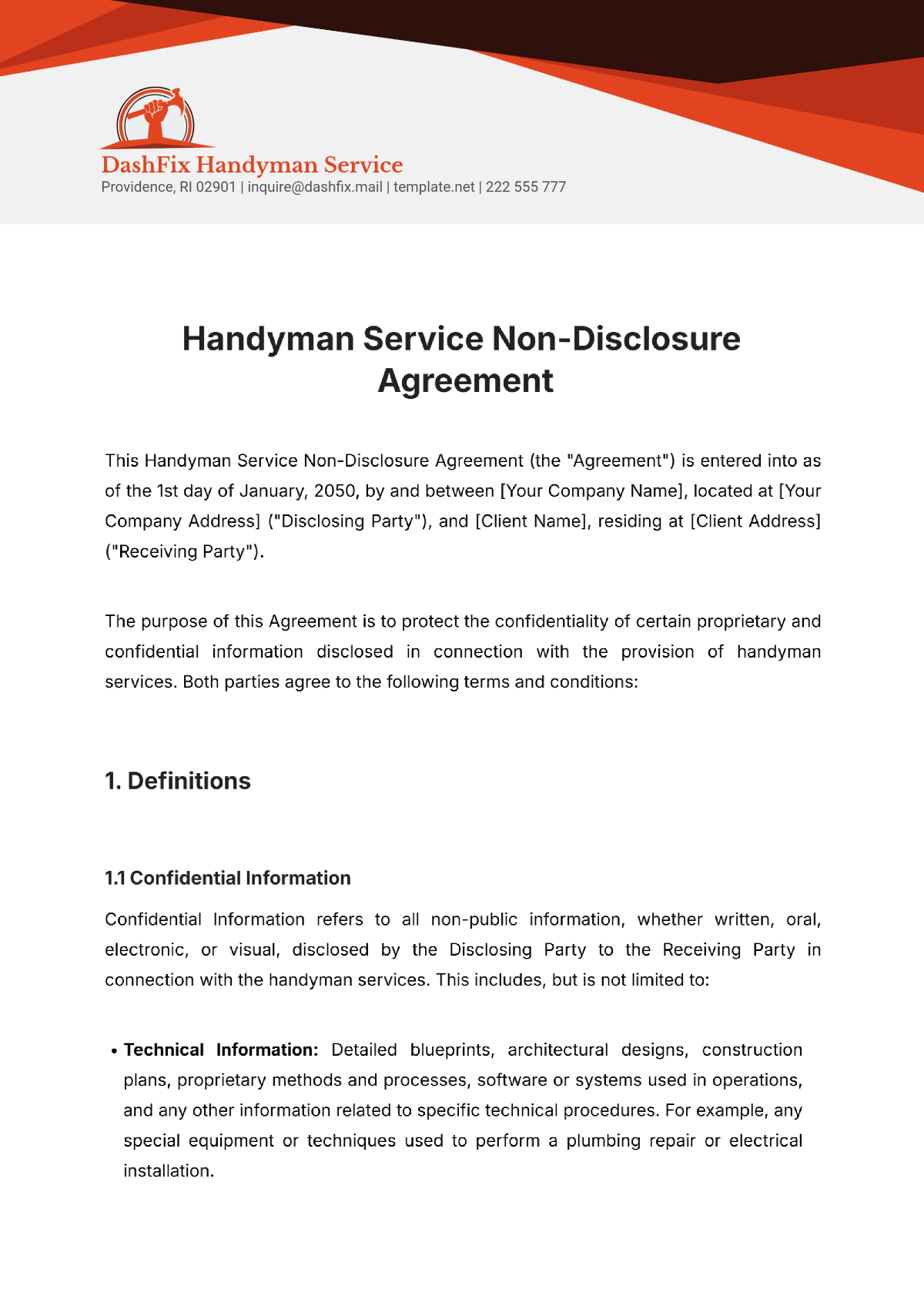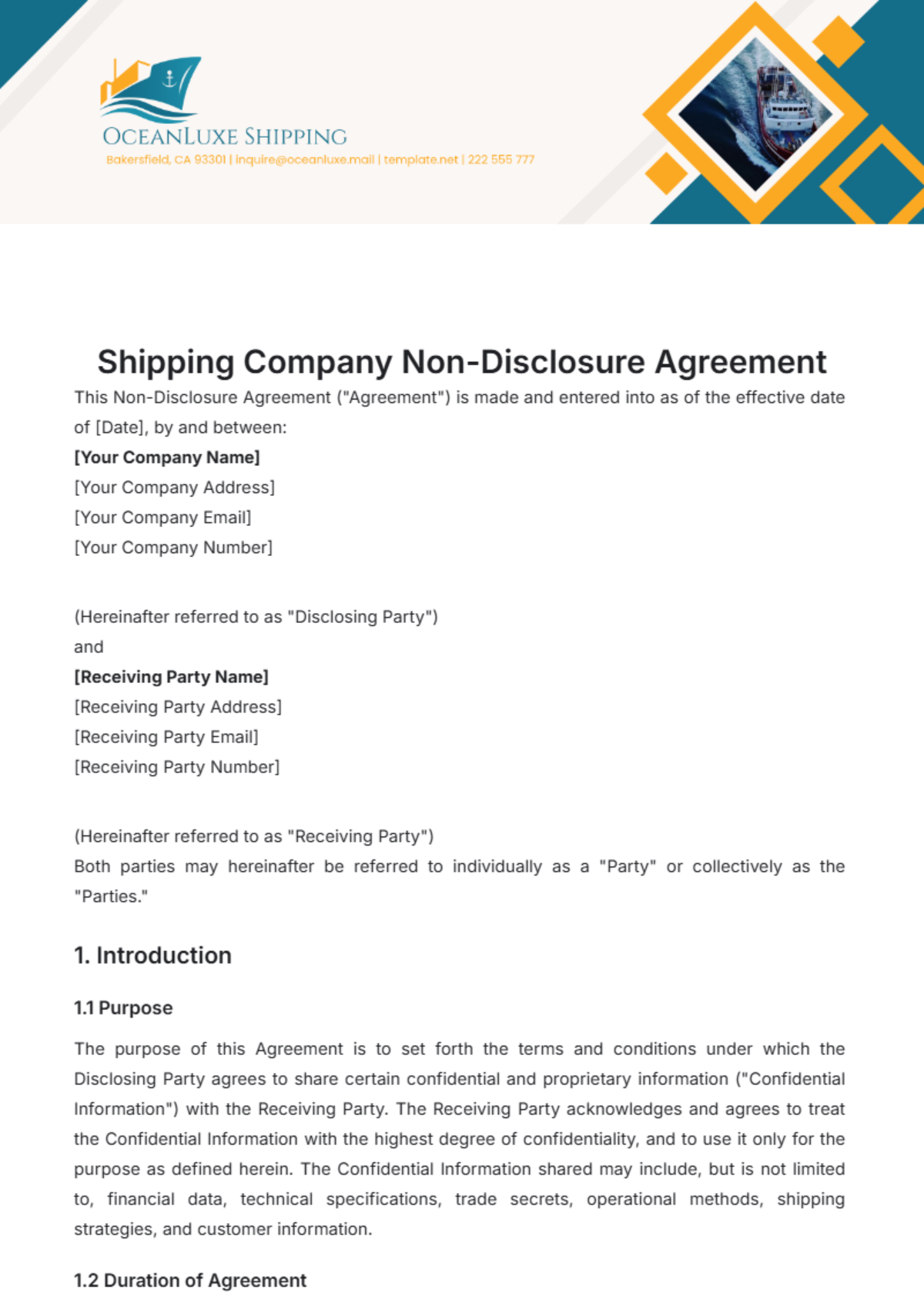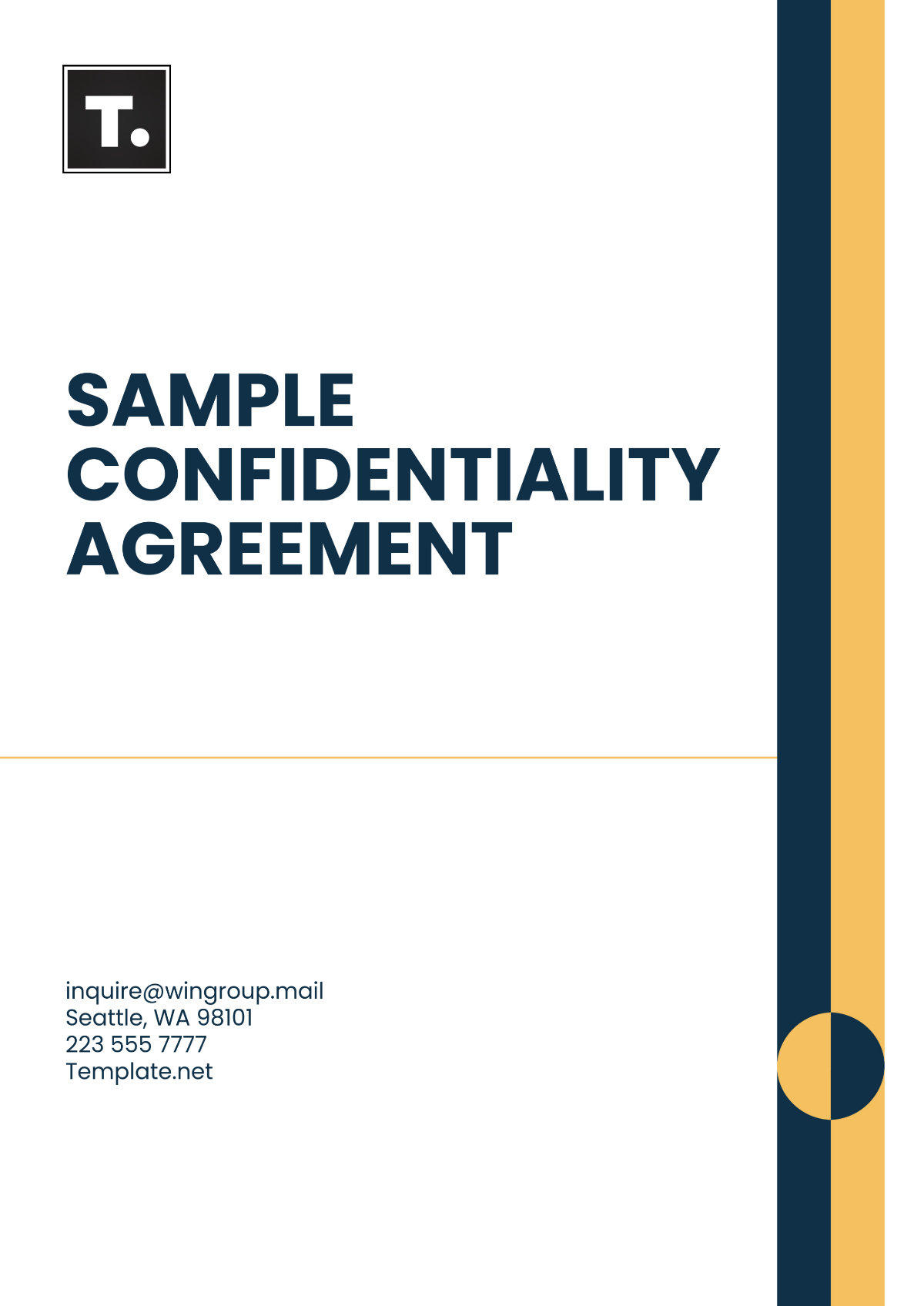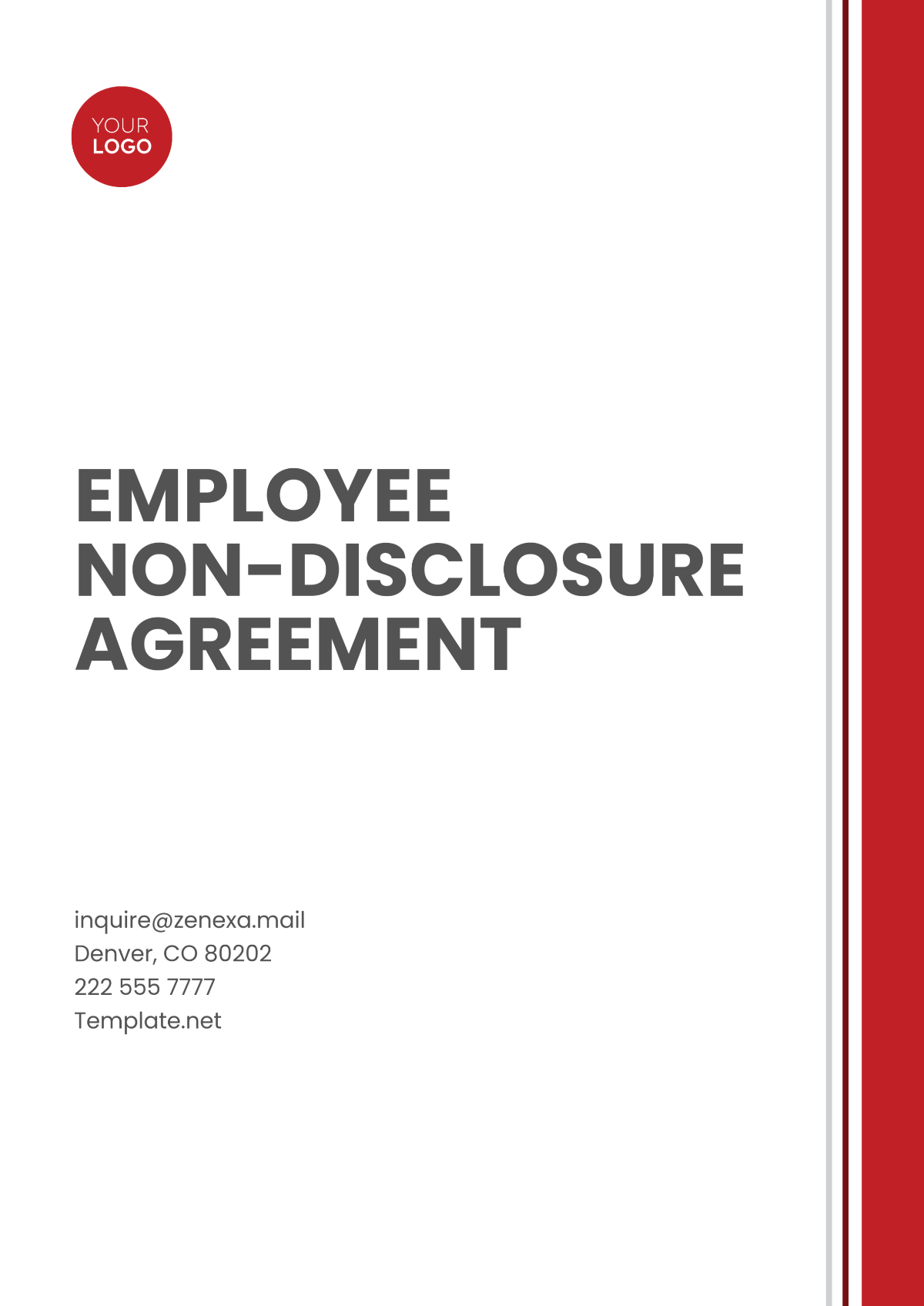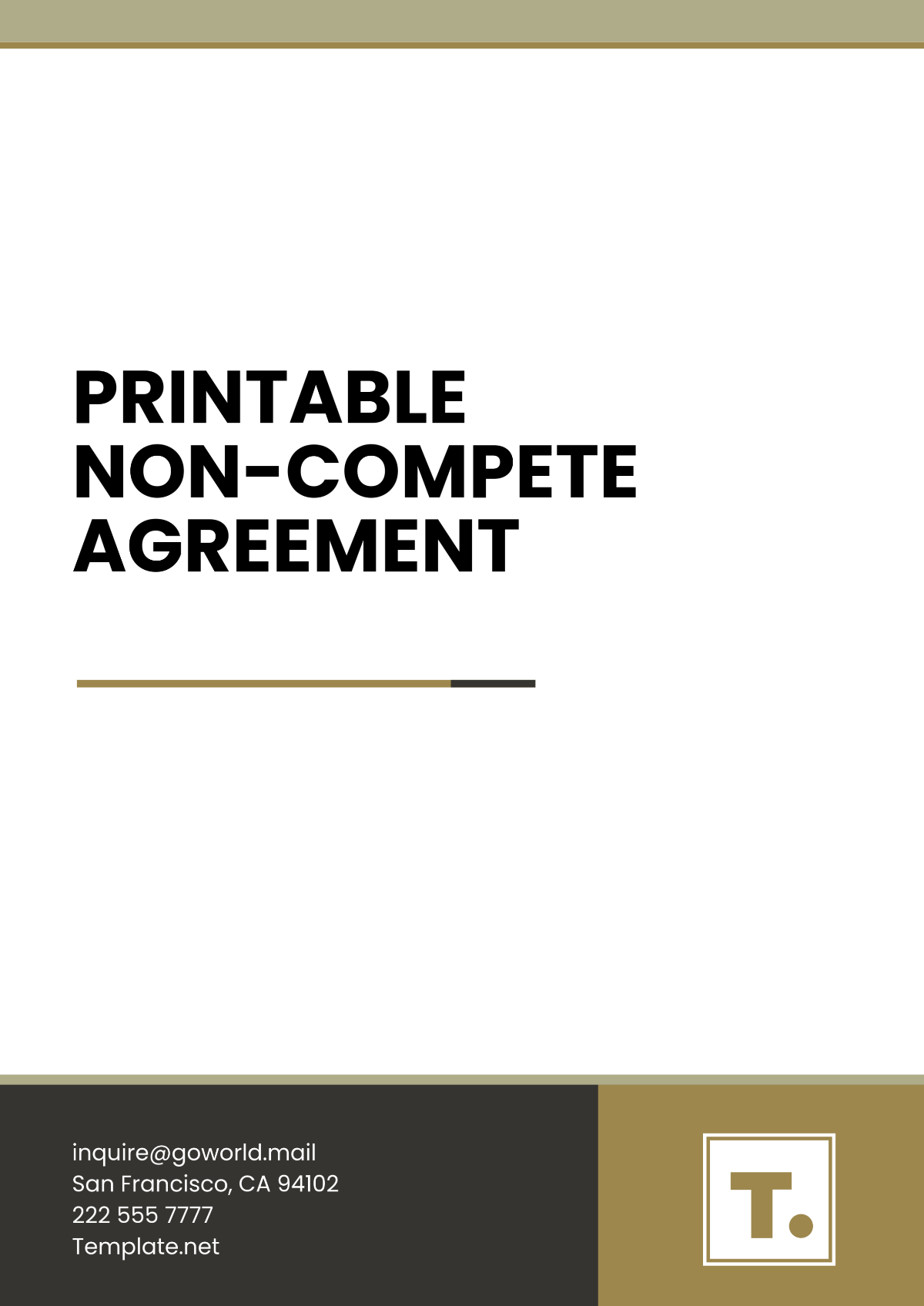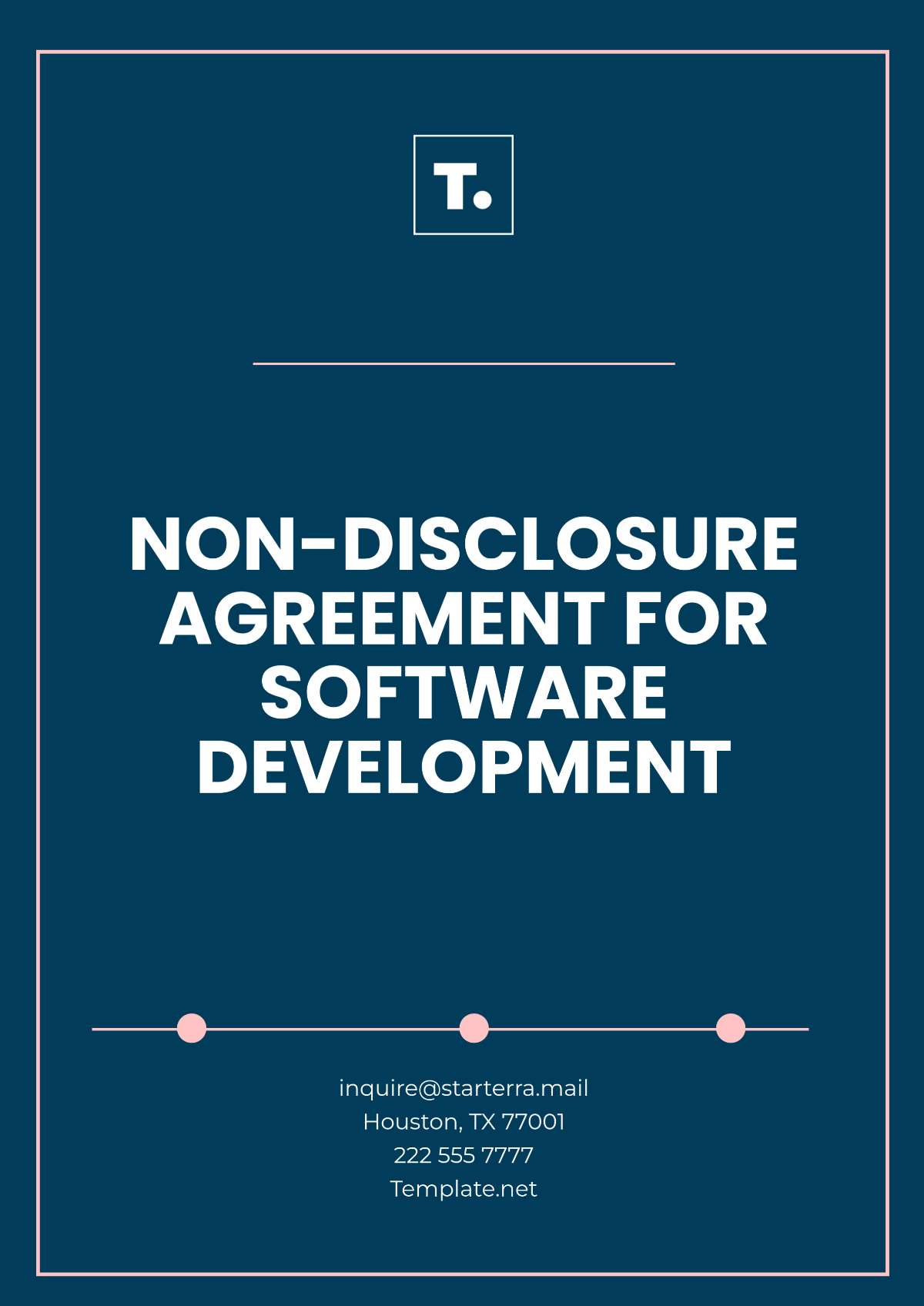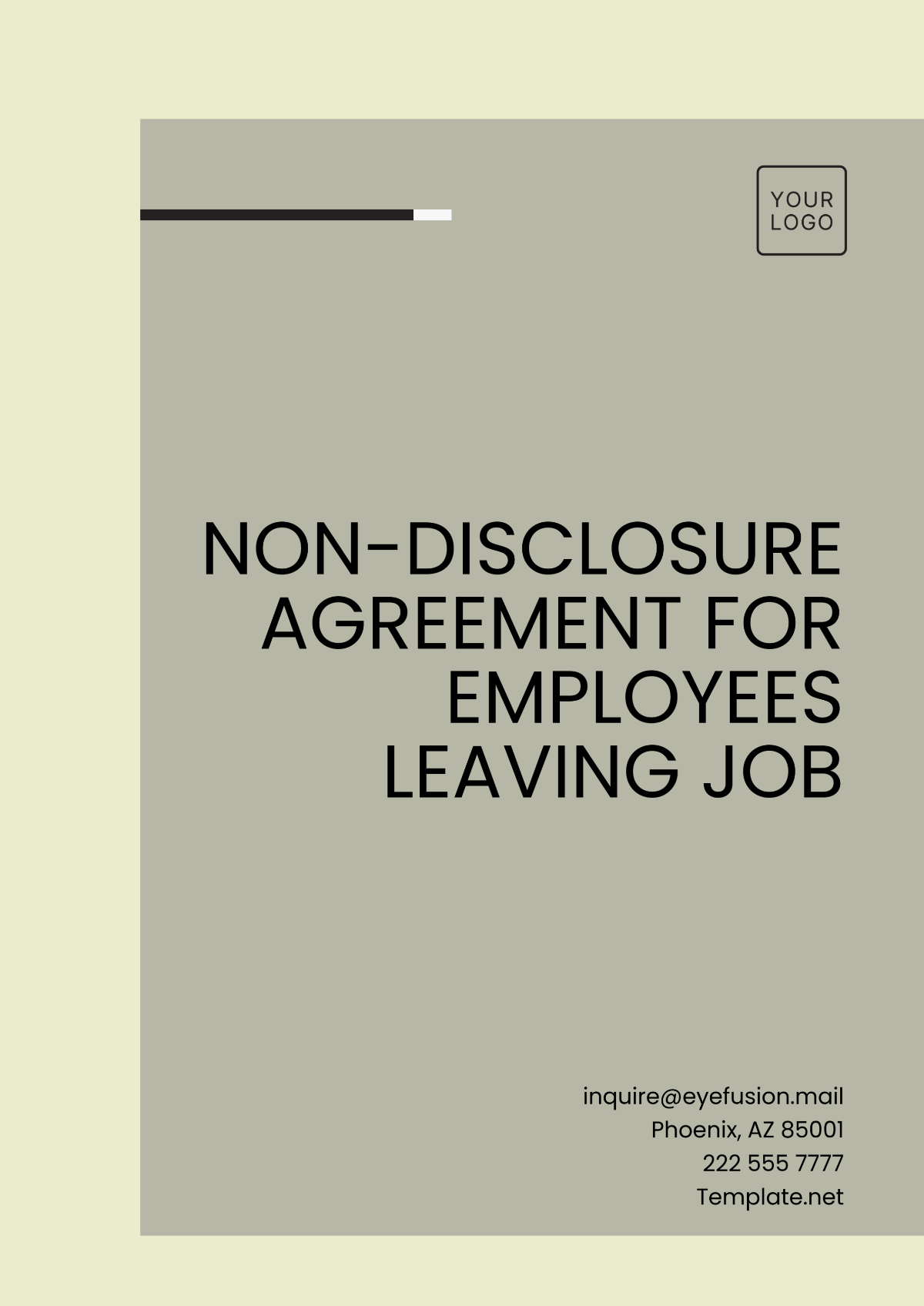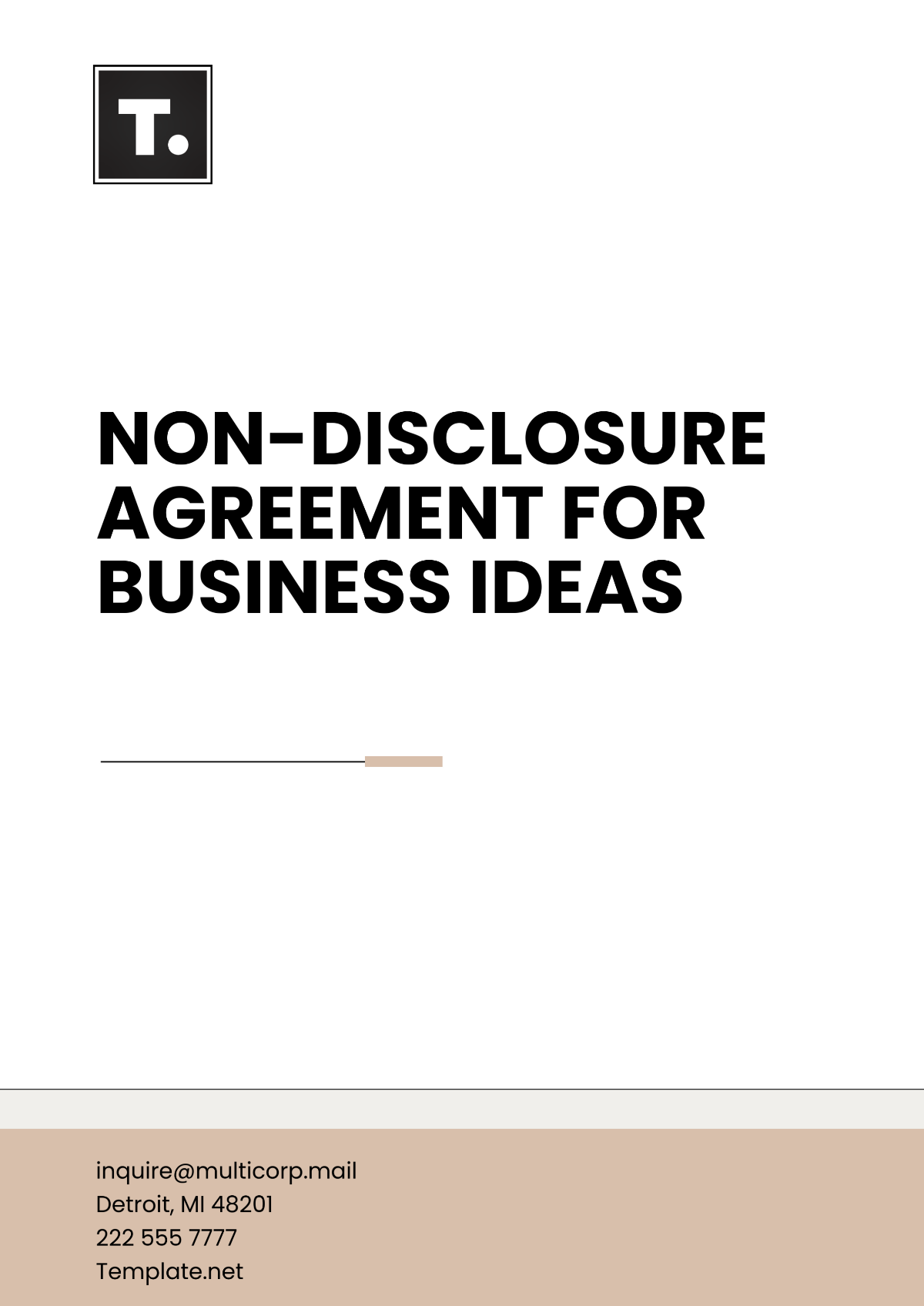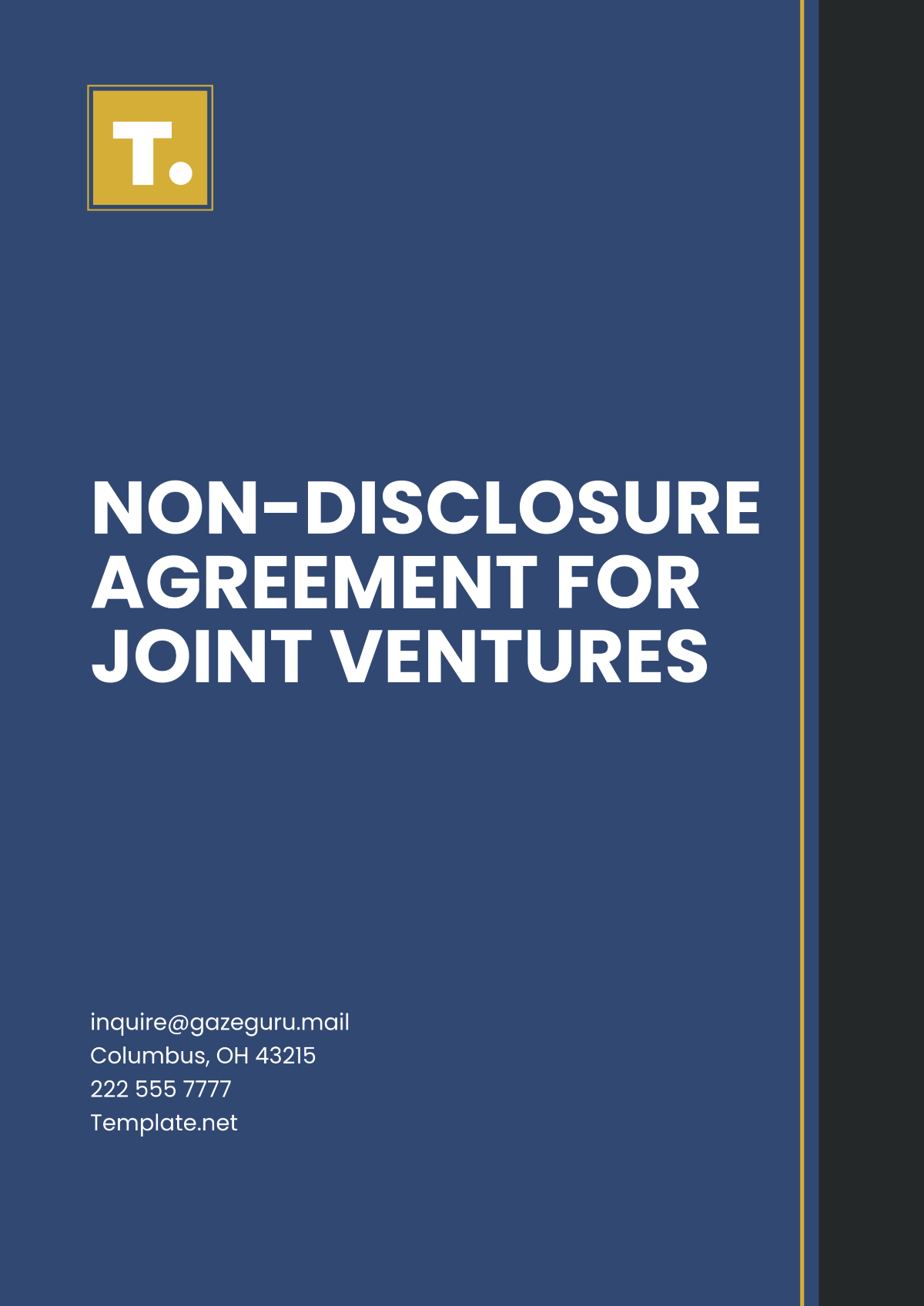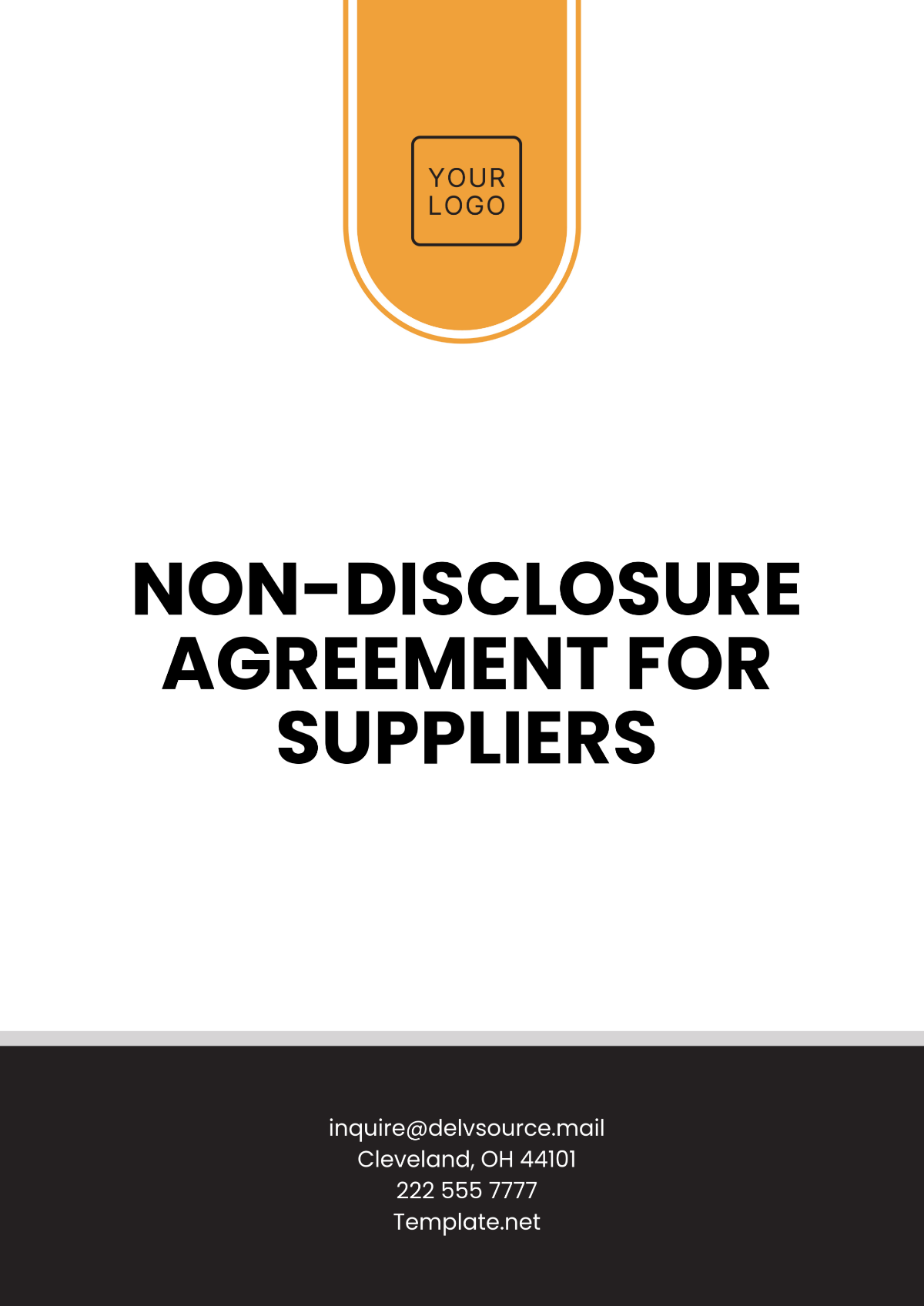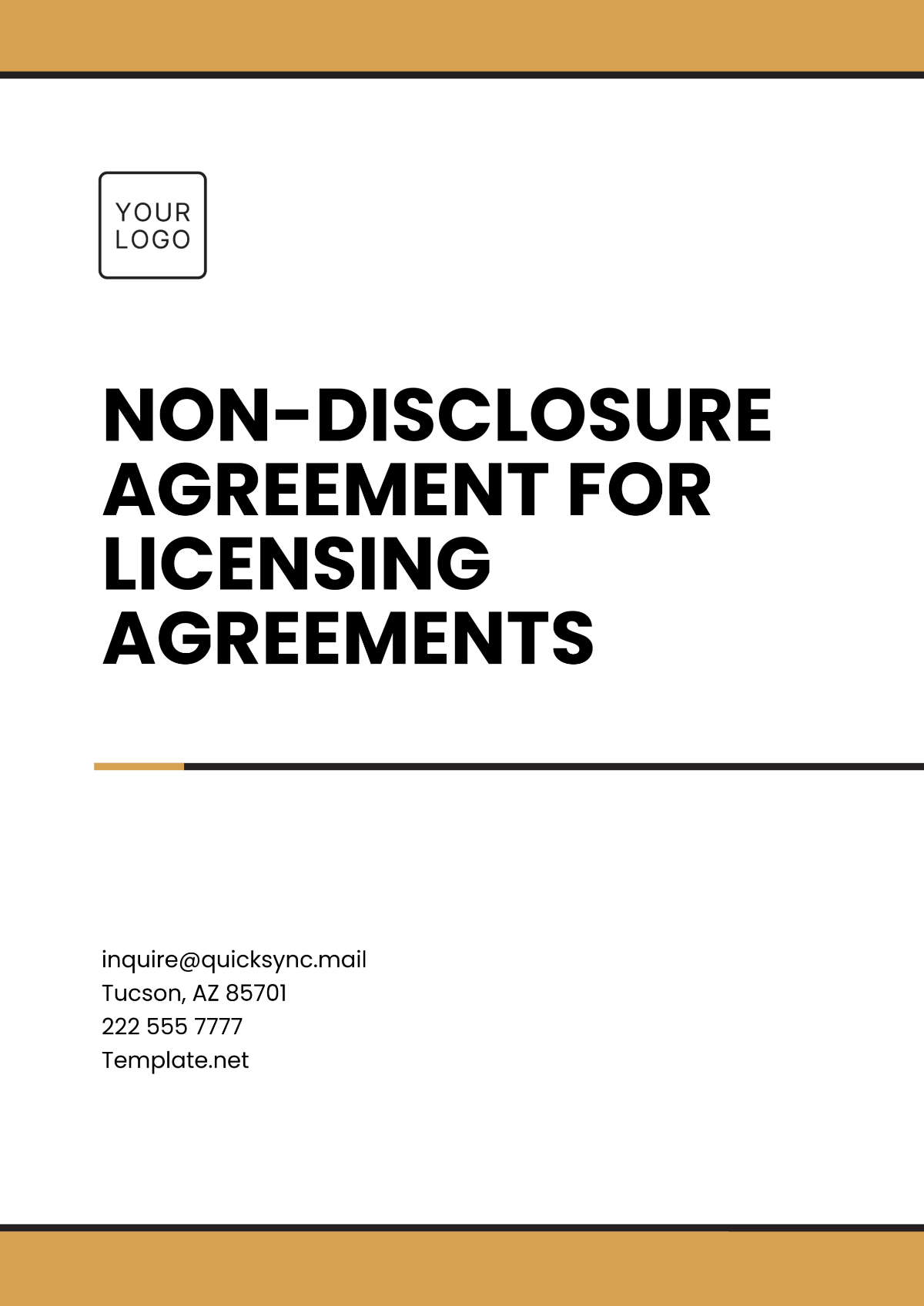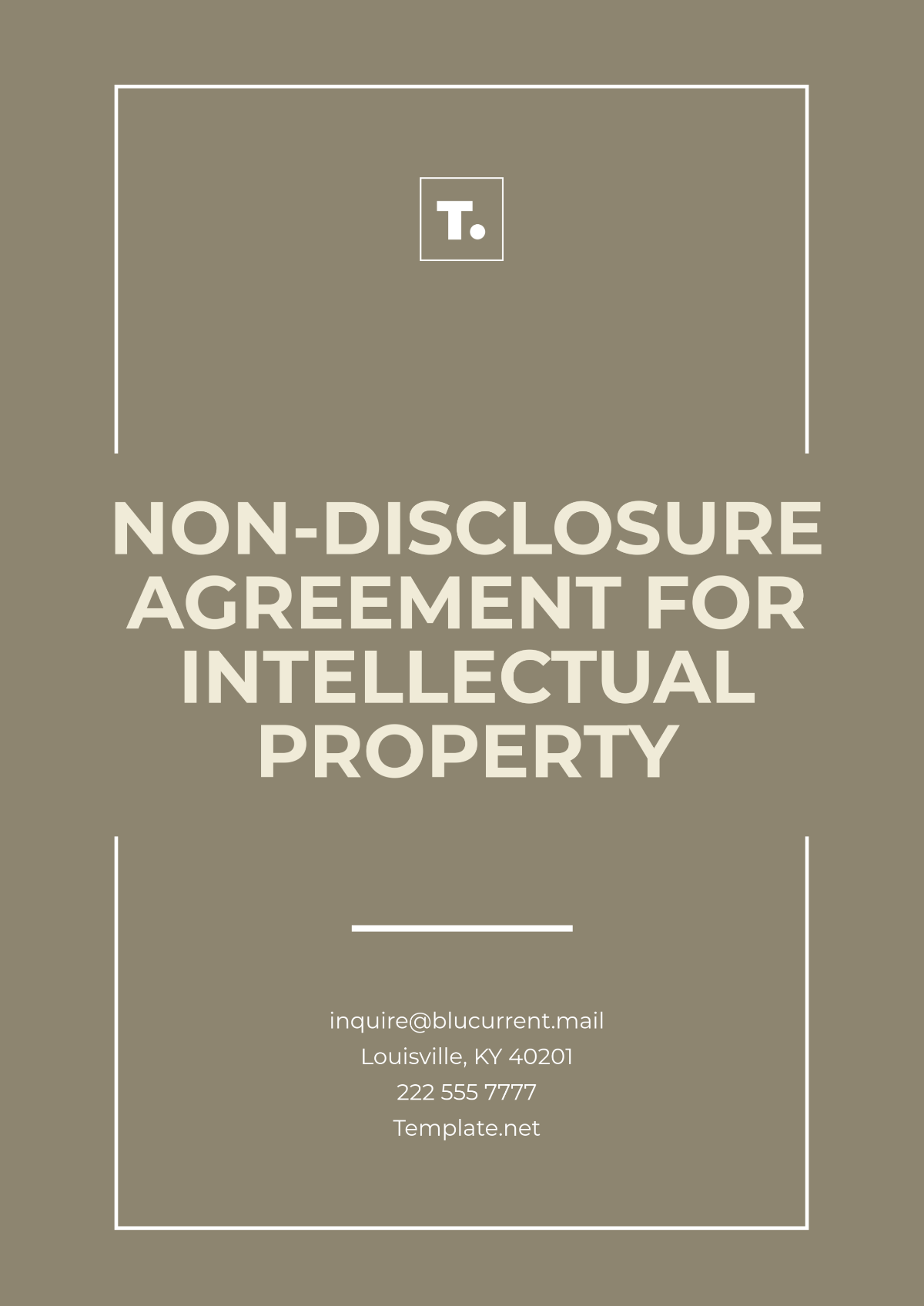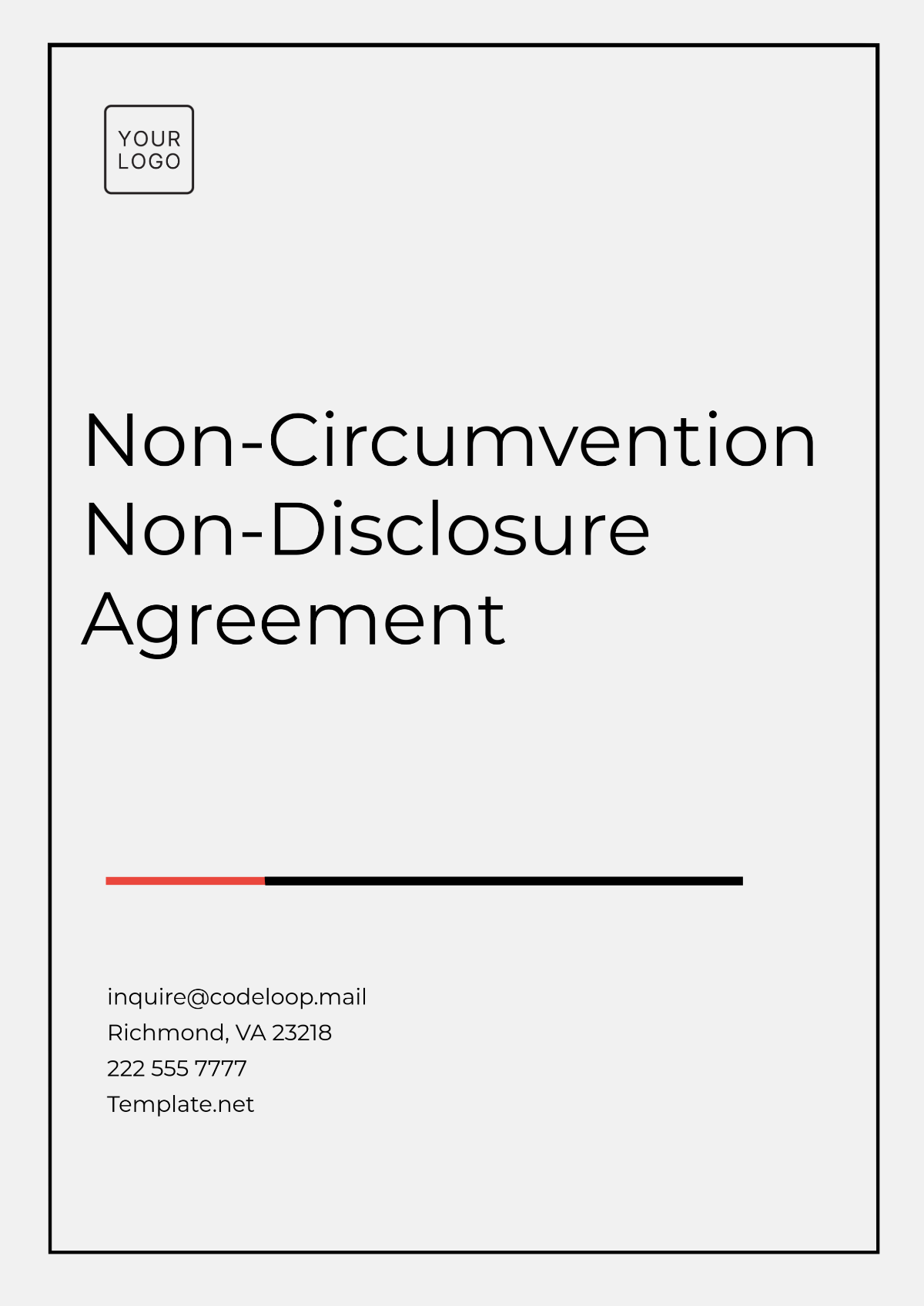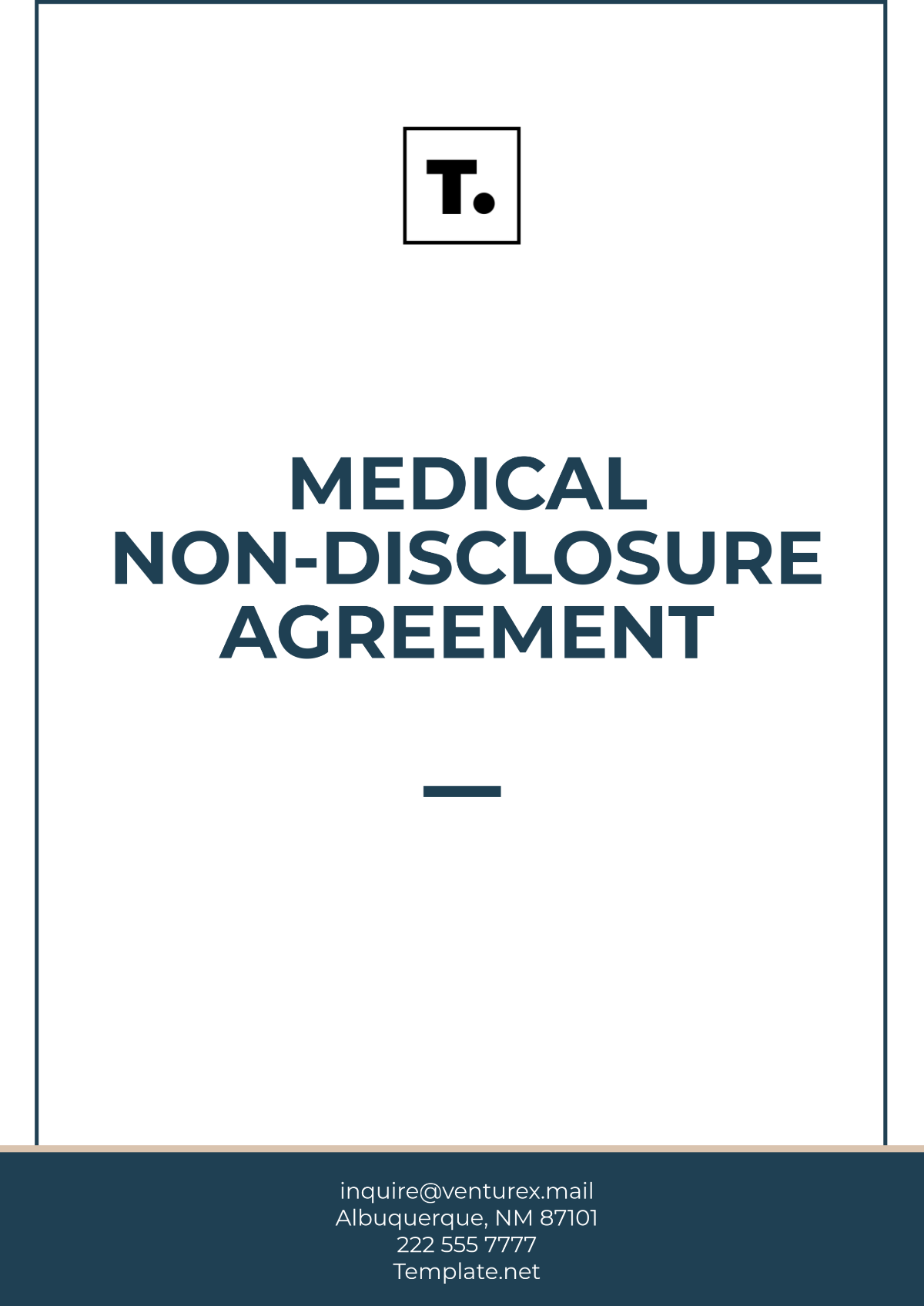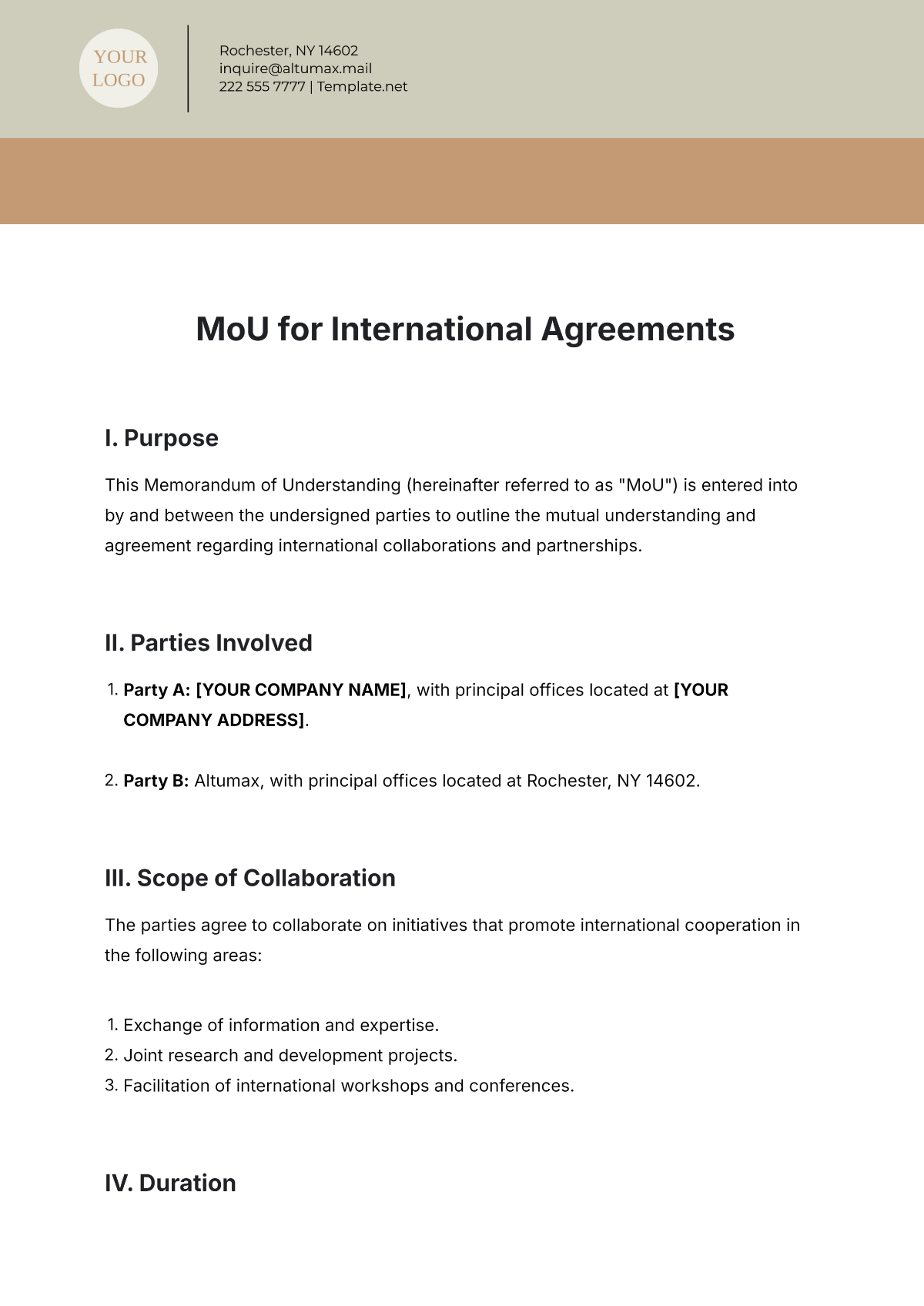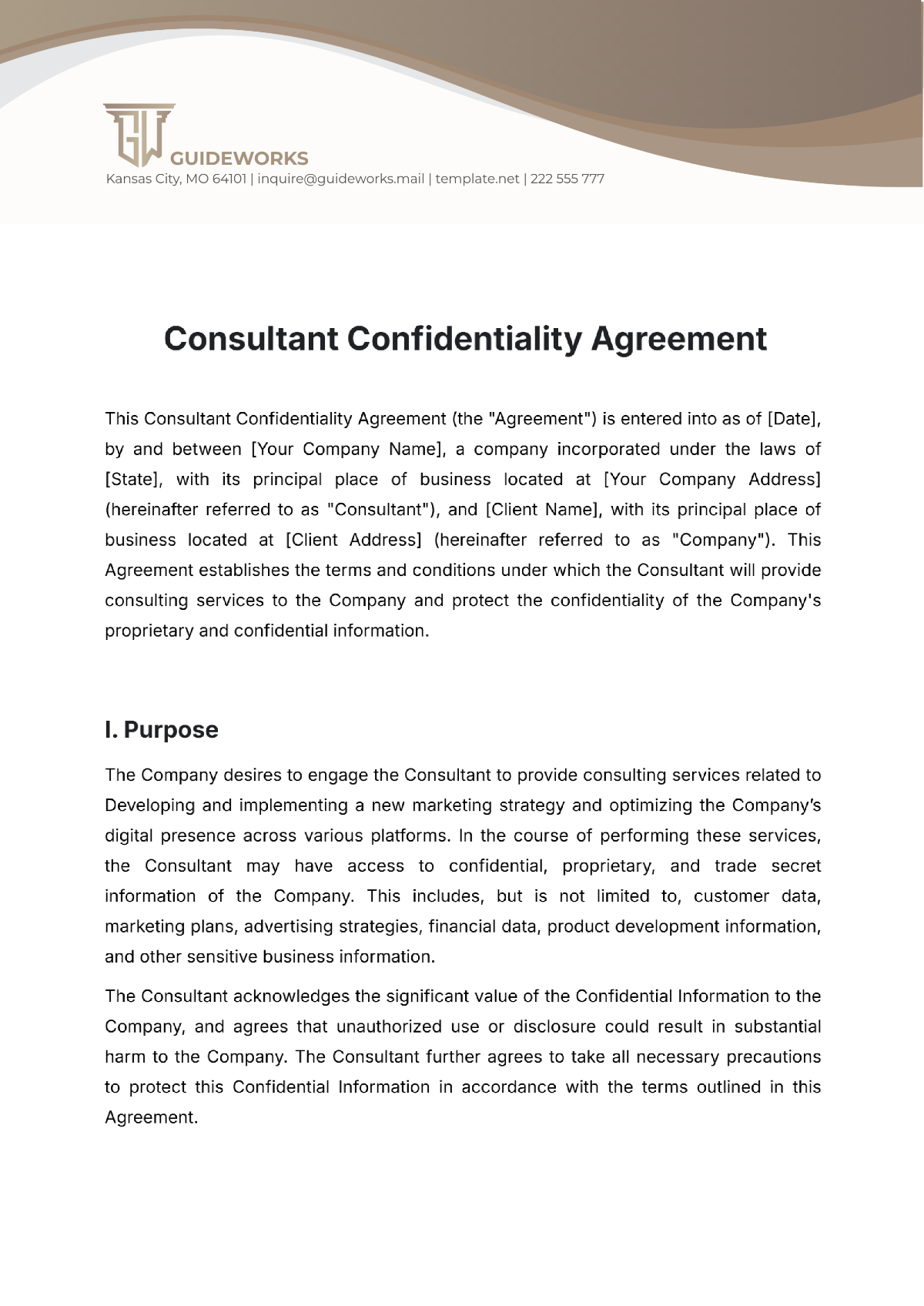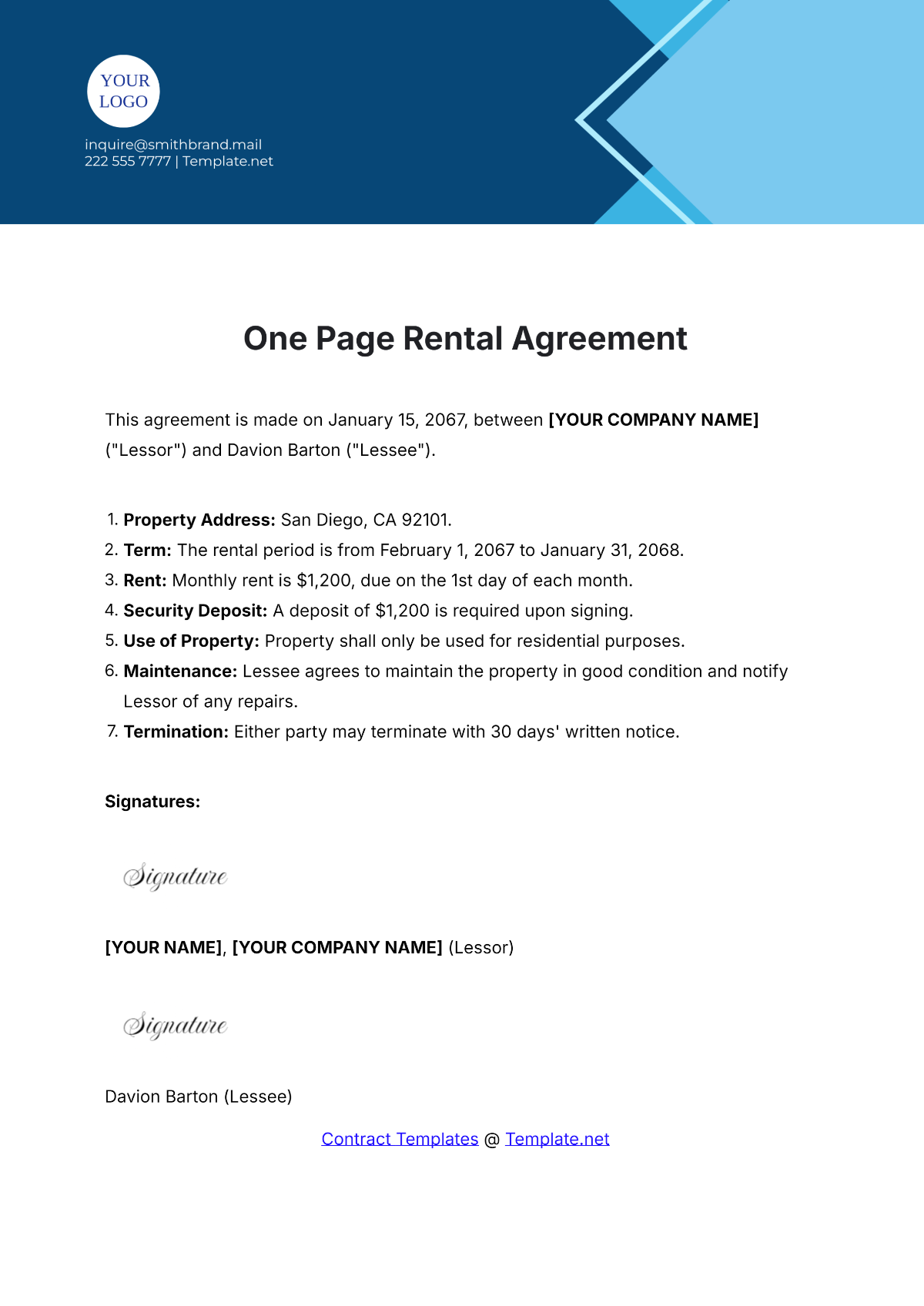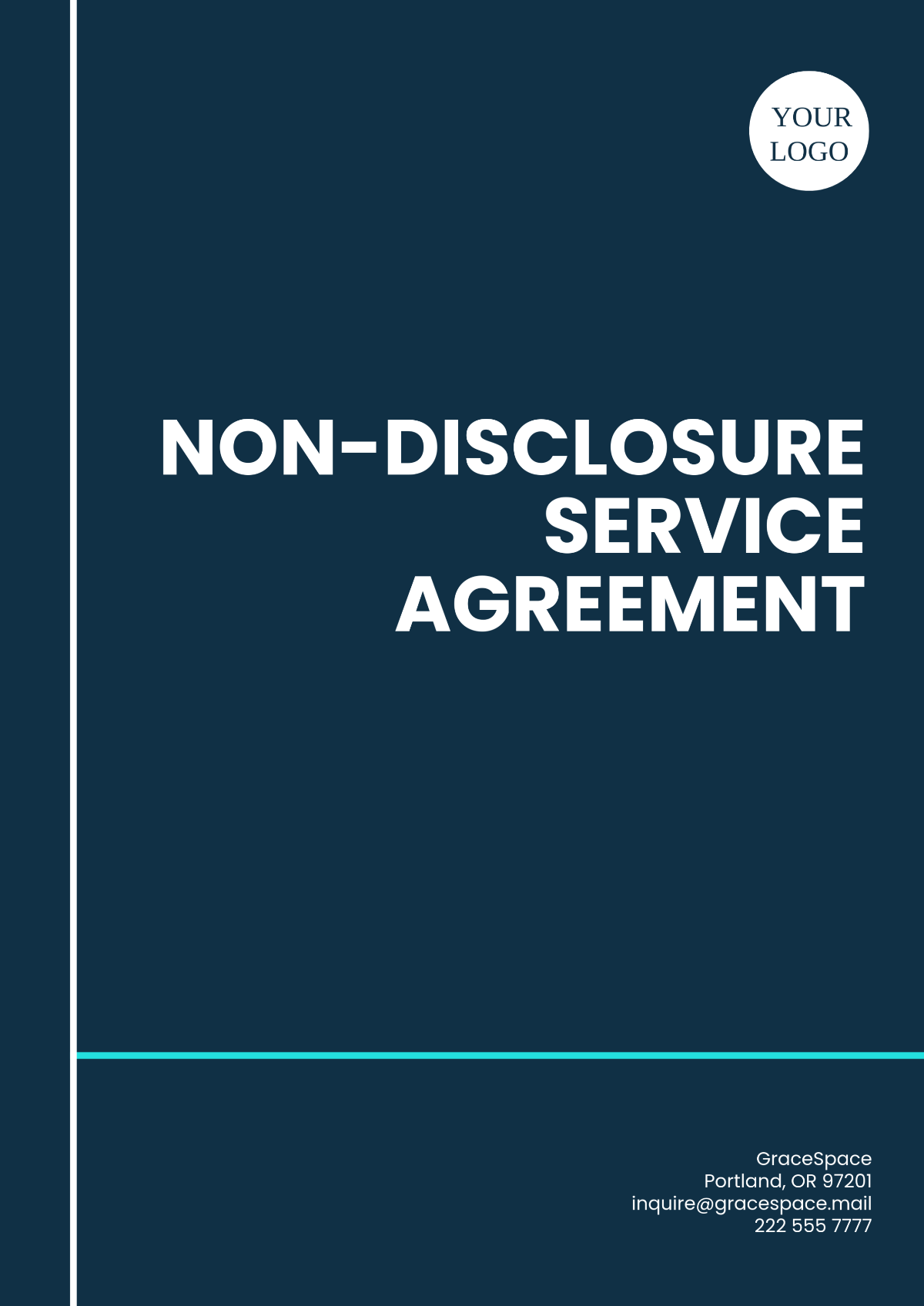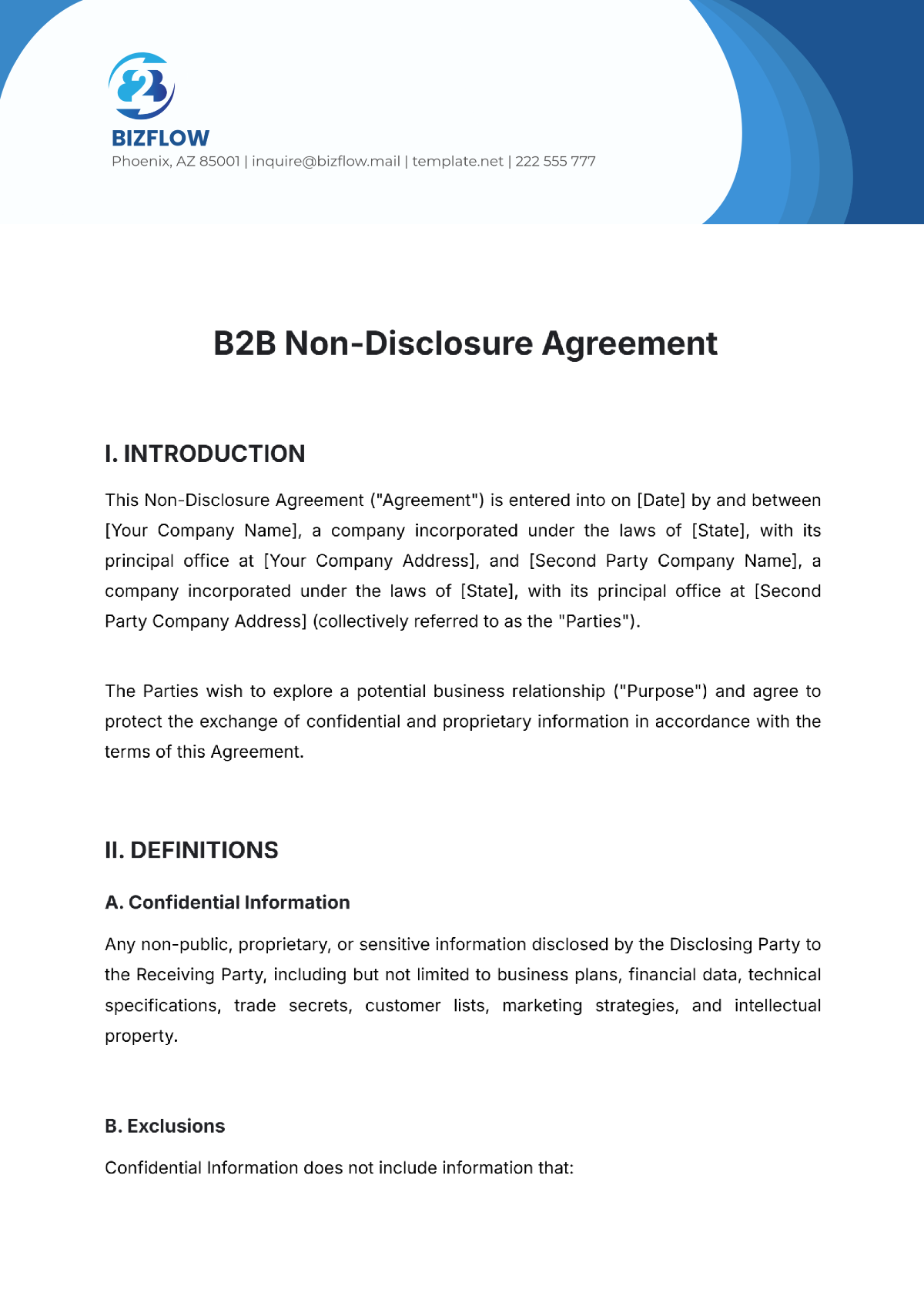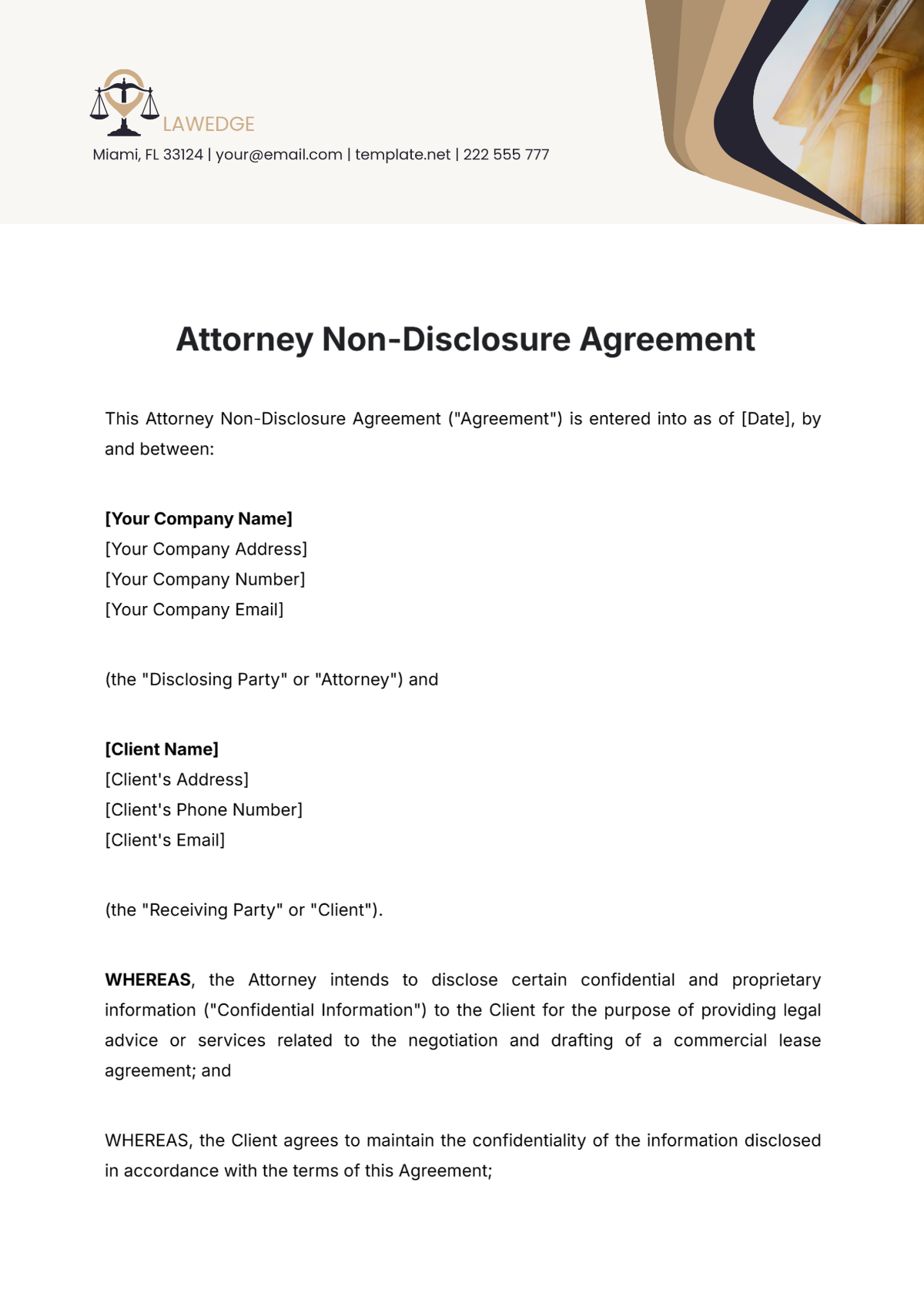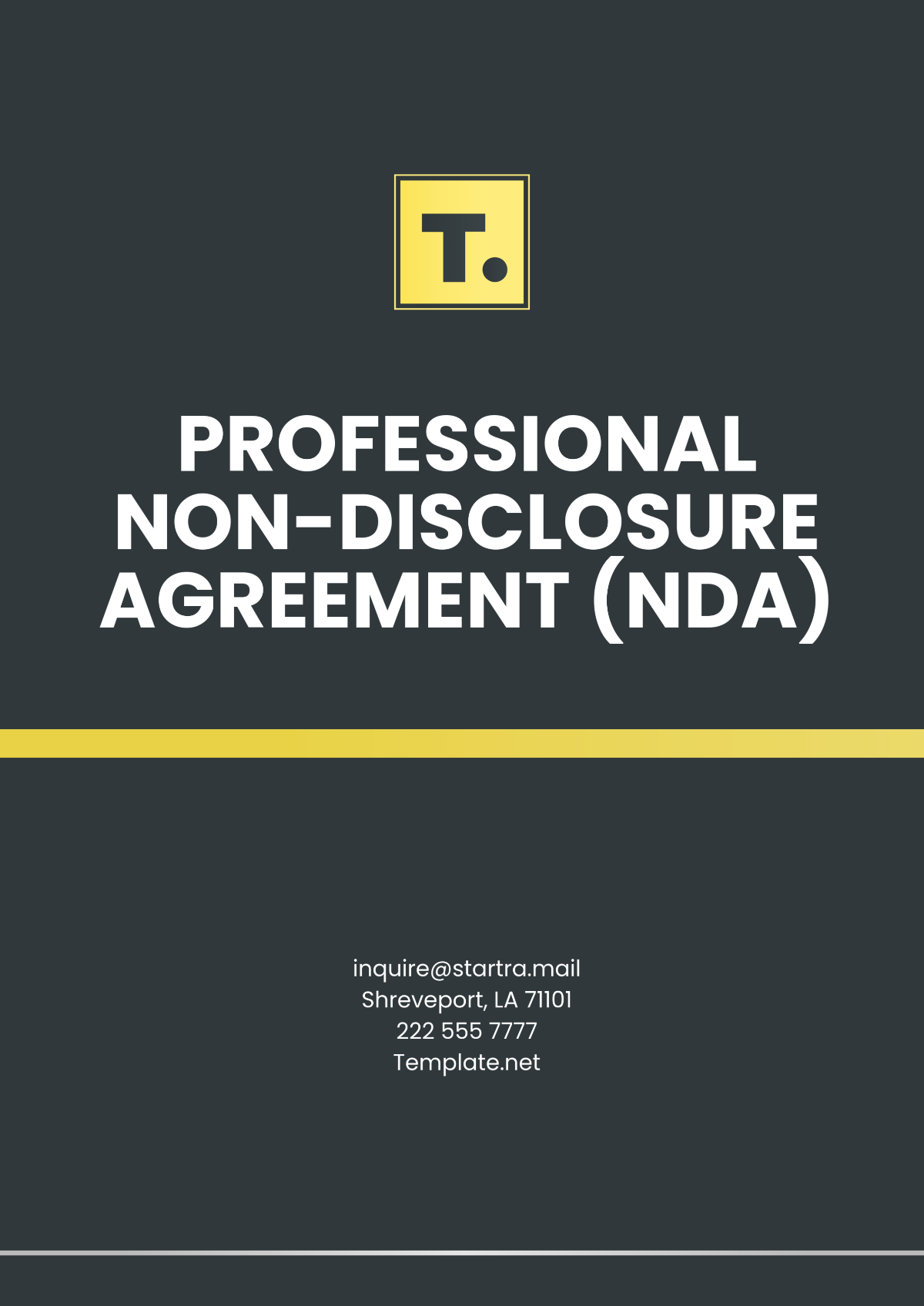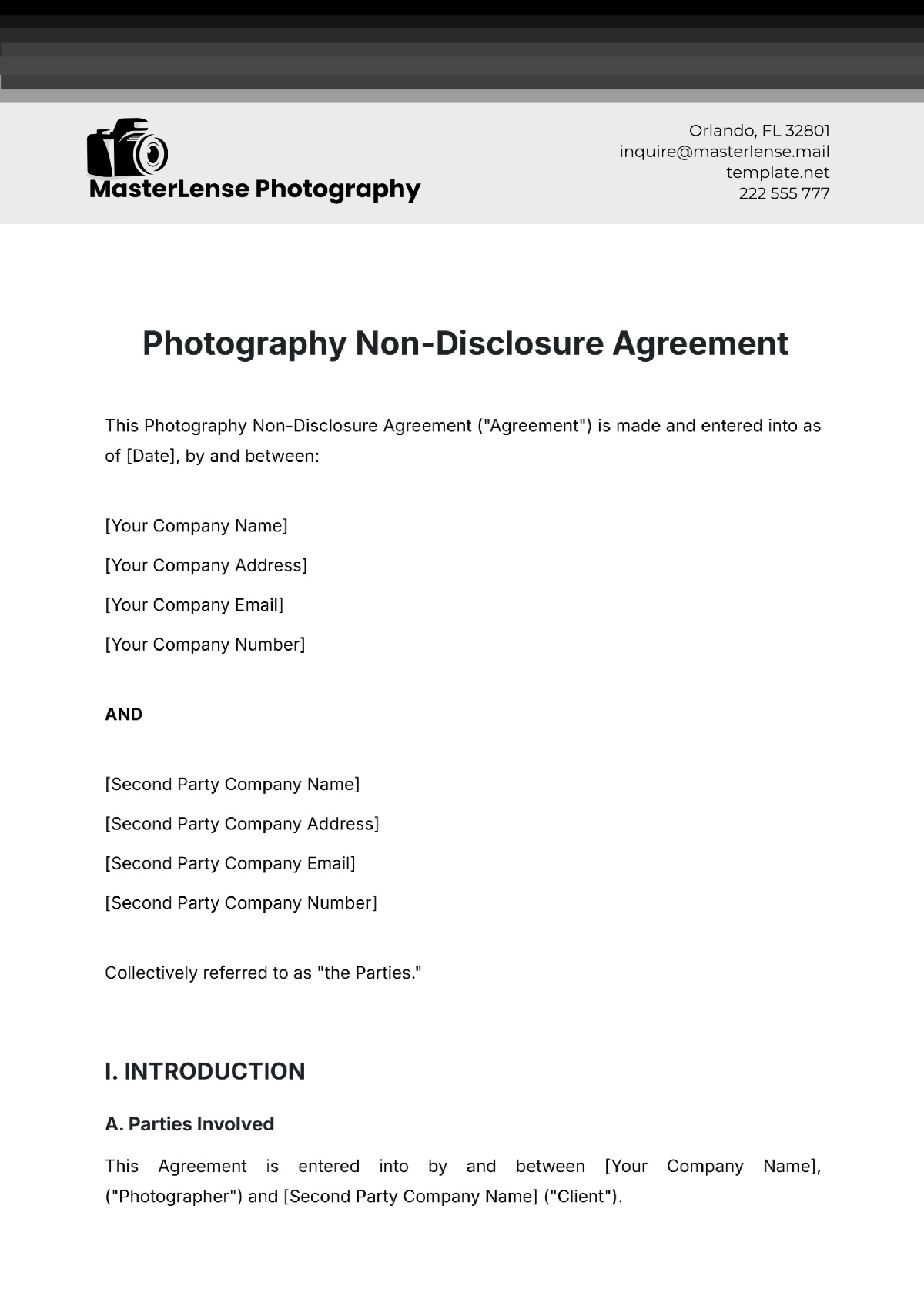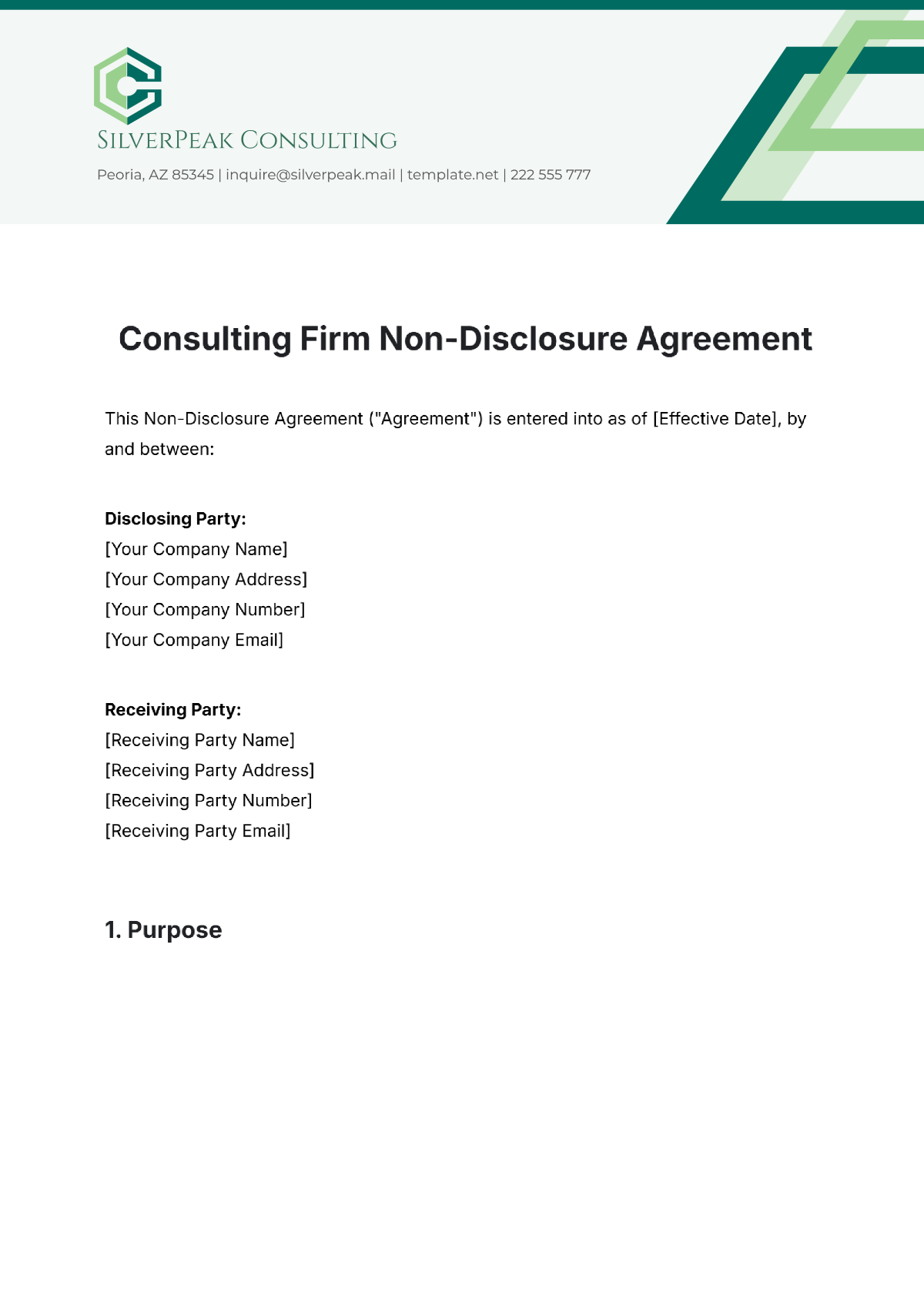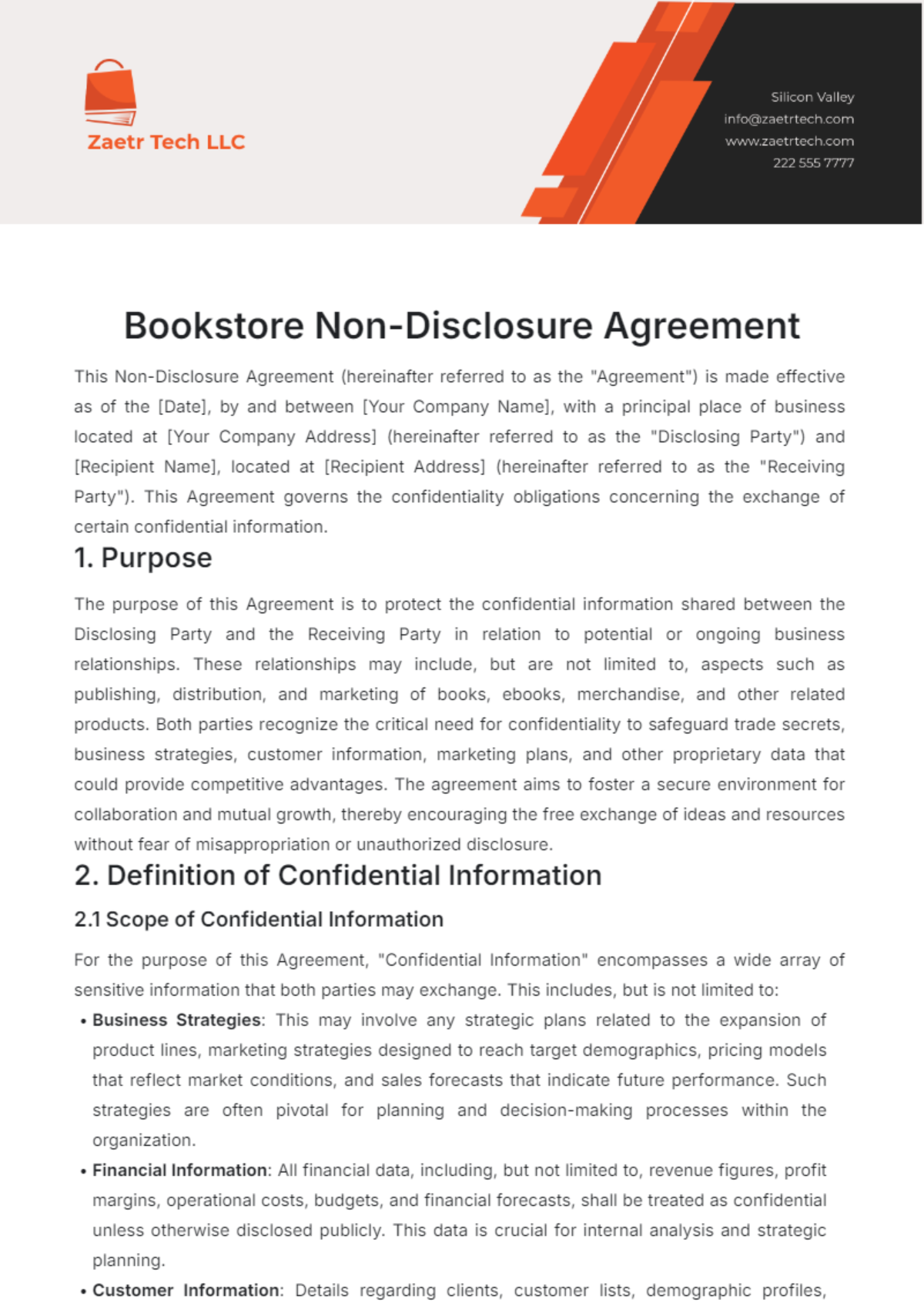Non Disclosure Agreement Form
I. The Parties
This Non Disclosure Agreement ("Agreement") is entered into as of
WHEREAS, the Disclosing Party possesses confidential, proprietary, or trade secret information (hereinafter referred to as "Confidential Information") that may be disclosed to the Receiving Party for the purposes of evaluating, considering, or entering into a business relationship or transaction;
WHEREAS, the Receiving Party agrees to receive and treat the Confidential Information in strict confidence and not to disclose it to any third party except as provided in this Agreement;
WHEREAS, the Disclosing Party wishes to ensure that the Receiving Party protects the confidentiality and proprietary nature of its Confidential Information;
NOW THEREFORE, in consideration of the promises and mutual covenants set forth herein, the Parties hereby agree as follows:
II. Definition
For the purposes of this Agreement, "Confidential Information" includes all information disclosed by the Disclosing Party to the Receiving Party, whether orally or in writing, and whether marked as confidential or not, that the Disclosing Party considers proprietary, sensitive, or private. The information must meet specific criteria to qualify as Confidential Information under this Agreement.
A. Business Information
This includes information related to the Disclosing Party's business strategies, financial data, marketing plans, or operational methods. Business Information may also encompass reports, sales projections, customer lists, and supplier contracts that are crucial to the Disclosing Party’s business operations and competitive position in the market.
B. Technical Information
Technical Information refers to any data, processes, or formulas related to the Disclosing Party's technological developments. This includes engineering designs, product specifications, software code, and research and development plans. Such information may be essential for the development and improvement of the Disclosing Party’s products or services.
C. Proprietary Information
Proprietary Information includes trade secrets, patents, and any intellectual property owned or controlled by the Disclosing Party. It also covers undisclosed inventions, discoveries, or improvements that give the Disclosing Party a competitive advantage in its industry. This type of information is not available to the general public and is critical to the business.
D. Personal Information
Personal Information refers to any information that can identify an individual and includes, but is not limited to, names, addresses, phone numbers, email addresses, and Social Security numbers. If disclosed by the Disclosing Party, it may also include information regarding employees, contractors, or clients that the Disclosing Party has a duty to protect.
E. Financial Information
This type of Confidential Information includes financial statements, pricing structures, profit margins, or investment strategies. Financial Information may also encompass budget forecasts, cost analyses, and tax records that are crucial to understanding the financial health or strategy of the Disclosing Party's business.
F. Third-Party Information
Any information that the Disclosing Party has received from a third party and is obligated to keep confidential falls under this category. The Disclosing Party may have agreements in place with other companies, partners, or vendors to maintain the confidentiality of their information, which must also be protected under this Agreement.
III. Obligations of the Receiving Party
The Receiving Party agrees to use the Confidential Information solely for the purpose specified in this Agreement and not for any other purpose, including any competitive or business advantage. The Receiving Party shall maintain the Confidential Information in strict confidence and shall exercise at least the same degree of care to protect the confidentiality of the information as it uses for its own confidential and proprietary information.
The Receiving Party shall restrict access to the Confidential Information to those of its employees, agents, or contractors who need to know the information in connection with the authorized purpose. These individuals must also be bound by confidentiality obligations that are at least as protective as those in this Agreement.
The Receiving Party further agrees to notify the Disclosing Party promptly in the event of any unauthorized disclosure, use, or loss of Confidential Information, and to take all reasonable steps to prevent any further unauthorized disclosure or use.
IV. Exclusions from Confidential Information
A. Public Information
Any information that is or becomes publicly available without breach of this Agreement by the Receiving Party shall not be considered Confidential Information. This includes information that is widely disseminated through public channels such as media, publications, or websites, and not due to any action or inaction by the Receiving Party.
B. Prior Knowledge
Information that was already in the Receiving Party's possession, without obligation of confidentiality, prior to its disclosure by the Disclosing Party is excluded from this Agreement. However, the Receiving Party must be able to provide documentation or other proof that it possessed the information before the disclosure occurred.
C. Independent Development
Confidential Information does not include information that is independently developed by the Receiving Party without reference to or reliance on the Disclosing Party’s Confidential Information. Such independently developed information is free from any restrictions under this Agreement.
D. Third-Party Disclosure
Any information disclosed to the Receiving Party by a third party lawfully in possession of such information and without a duty of confidentiality is not considered Confidential Information. The Receiving Party must be able to show that the third party disclosed the information legitimately.
V. Duration of Confidentiality Obligations
The confidentiality obligations of the Receiving Party shall remain in effect for a period of
The Receiving Party’s duty to protect the Confidential Information survives any termination or expiration of this Agreement, and this obligation shall extend for the agreed-upon time, regardless of any other events, unless the information falls within one of the exclusions listed in Section IV.
VI. Permitted Disclosures
The Receiving Party may disclose Confidential Information only if required to do so by law, regulation, or valid court order. In such cases, the Receiving Party agrees to give the Disclosing Party prompt written notice of the request for disclosure, allowing the Disclosing Party to seek a protective order or other legal remedy to prevent or limit the disclosure.
The Receiving Party shall only disclose the minimum amount of Confidential Information required to comply with the legal demand and will cooperate with the Disclosing Party’s efforts to obtain a protective order or otherwise limit the scope of the disclosure.
VII. No License
Nothing in this Agreement grants the Receiving Party any right, license, or interest in or to the Disclosing Party’s Confidential Information, except as explicitly provided under this Agreement. The disclosure of Confidential Information is intended solely for the limited purpose described in this Agreement and does not constitute a transfer or assignment of any intellectual property rights or ownership.
The Receiving Party acknowledges that the Disclosing Party remains the owner of all Confidential Information disclosed under this Agreement, including any and all intellectual property rights associated with that information.
VIII. Return/Destruction of Confidential Information
Upon termination of this Agreement or upon the written request of the Disclosing Party, the Receiving Party agrees to promptly return or destroy all copies of Confidential Information in its possession, including any notes, summaries, or analyses derived from the Confidential Information. If the Receiving Party opts to destroy the information, it must certify in writing to the Disclosing Party that all copies of the Confidential Information have been permanently deleted or destroyed. Failure to comply with the return or destruction of Confidential Information may result in legal consequences, including potential claims for damages or other remedies available at law.
IX. Term
This Agreement shall commence on
X. Remedies
In the event of a breach or threatened breach of this Agreement, the Disclosing Party shall be entitled to seek injunctive relief, specific performance, and any other legal or equitable remedy available under applicable law, without the necessity of posting a bond or proving actual damages. The Receiving Party acknowledges that the unauthorized disclosure of Confidential Information may result in irreparable harm to the Disclosing Party.
The remedies available to the Disclosing Party are cumulative and are not limited to those set forth in this Agreement. The Disclosing Party may pursue any other remedy available under the law or equity, including claims for monetary damages.
XI. Governing Law and Jurisdiction
This Agreement shall be governed by and construed in accordance with the laws of the state of
The Parties agree that any disputes shall be resolved through binding arbitration, mediation, or litigation, as determined by the Disclosing Party. The Parties hereby consent to the exclusive jurisdiction and venue of the courts in
XII. Signatures
IN WITNESS WHEREOF, the Parties have executed this Non-Disclosure Agreement as of the date first written above.
Disclosing Party Name: Date: | Receiving Party Name: Date: |
Agreement Form Templates @ Template.net
Thank you for submission!
We appreciate you taking the time to submit.
Create free forms at Template.net
